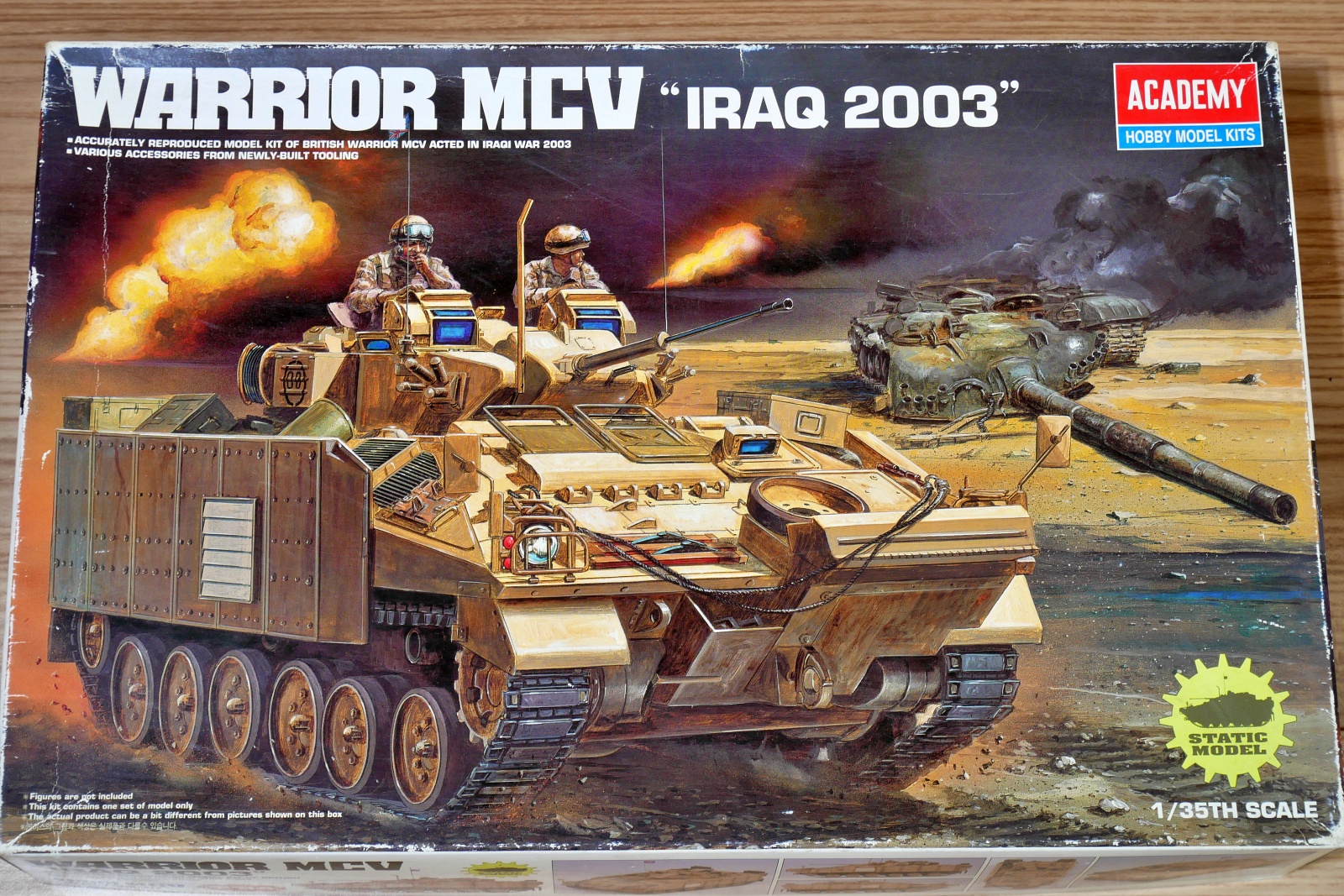
This time, I’m going to make Warrior, the Academy infantry fighting vehicle. Other companies have released it later, so it may become the mainstream in the future. I think I bought it more than 10 years ago. I moved many times and the box is much rubbed compared to other kits. It looks like we can make vehicles for the Iraq War and the Kosovo War.
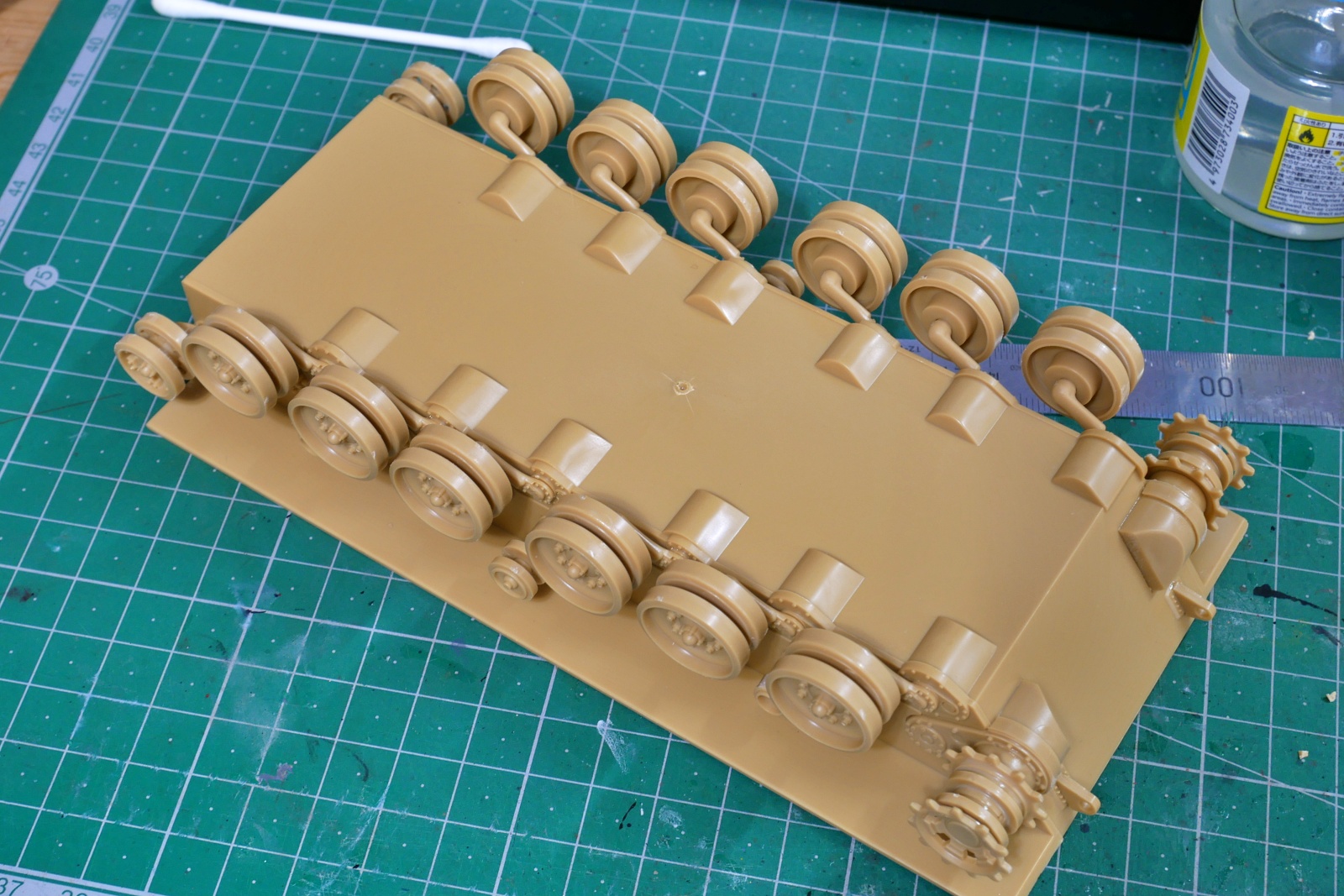
Rolling wheel work is easy, so it can be completed in an instant.
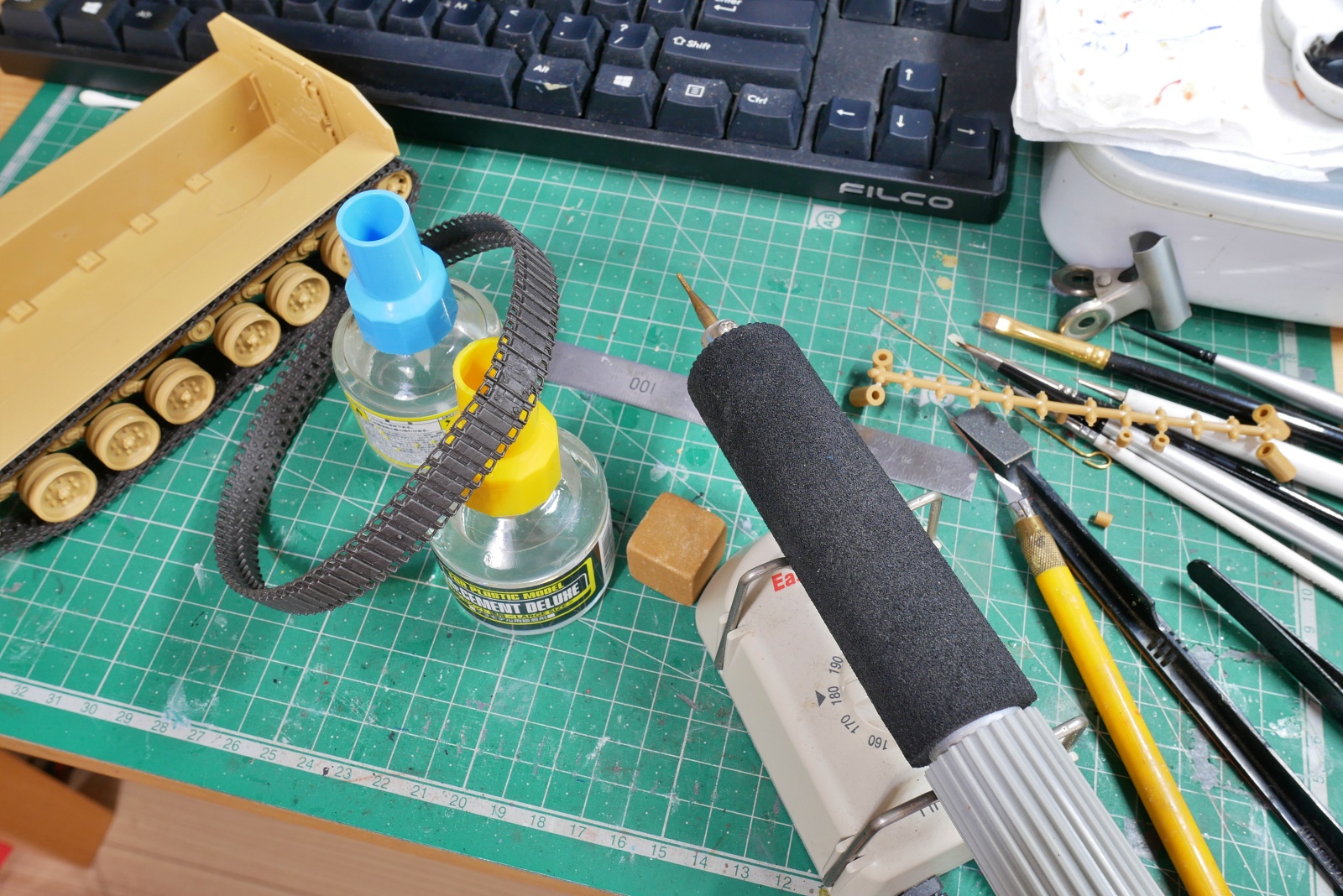
The track is belt type, so it needs to be burned. The heat pen I took out of the closet for the first time in several years worked well. Not only the pin, but it can be melted and attached over a wide area so that it can be held firmly without the need for stapling reinforcement.
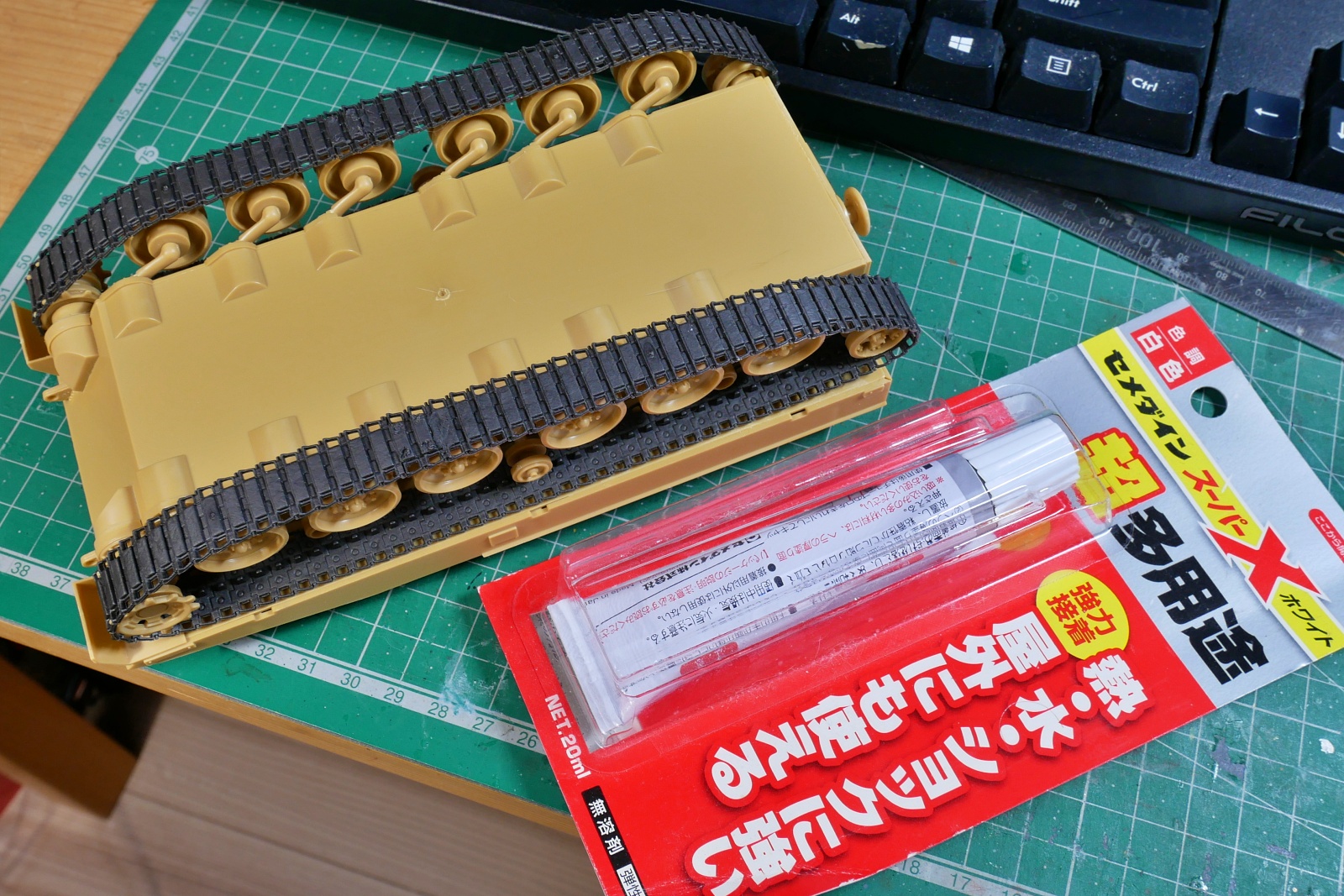
Various parts of belt type crawler are bonded with Cemedine which can also be bonded with rubber. If it is firmly bonded, the tension to the car body can be dispersed, so it will prevent damage. Come to think of it, the last time I used this adhesive was when I made the kit of Academy. The direction of the track seems to be easy to mistake, but I think this is correct.
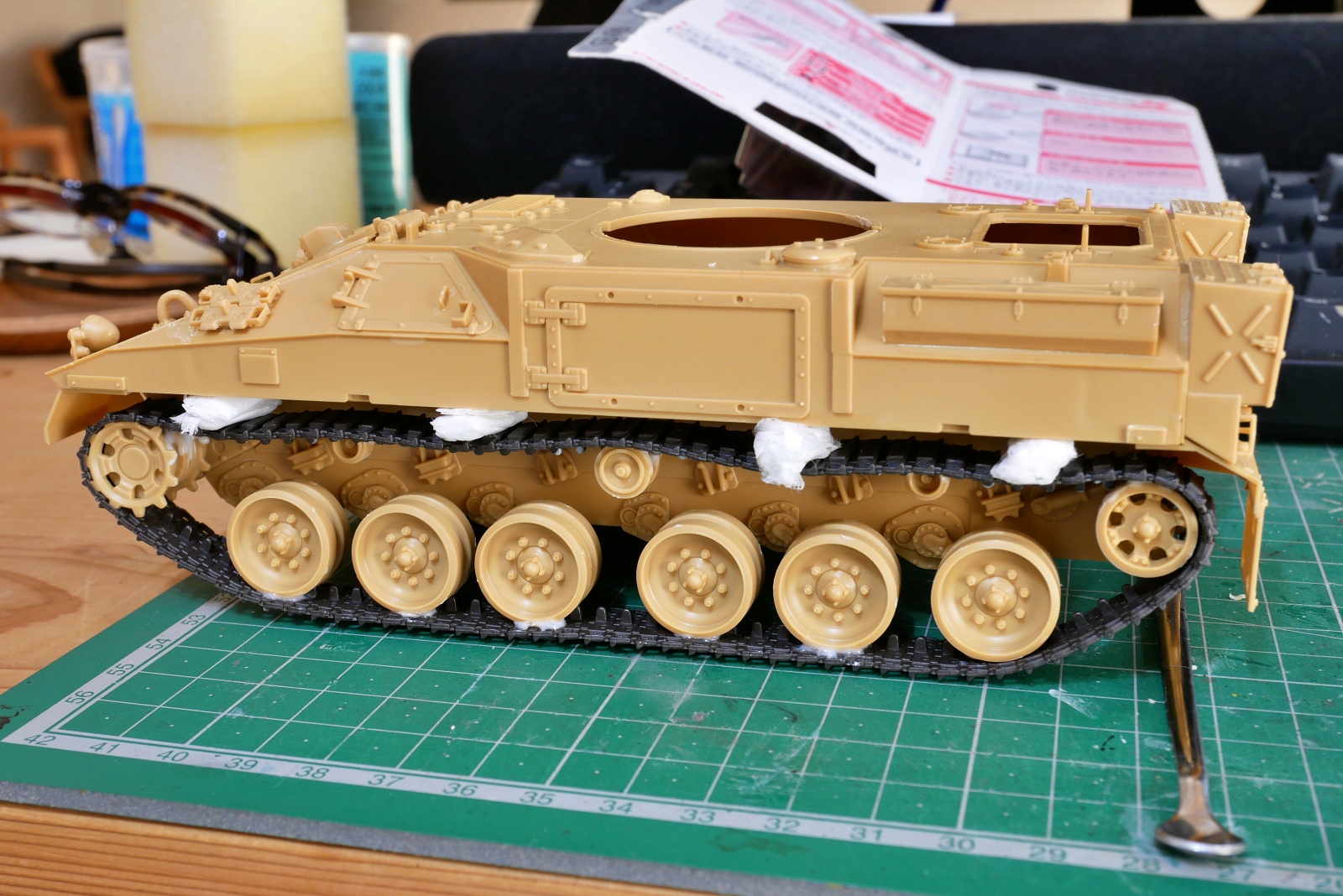
It is hidden by the side armor, but I can’t help expressing the natural looseness of the track. It’s a common thing for AFV modelers.
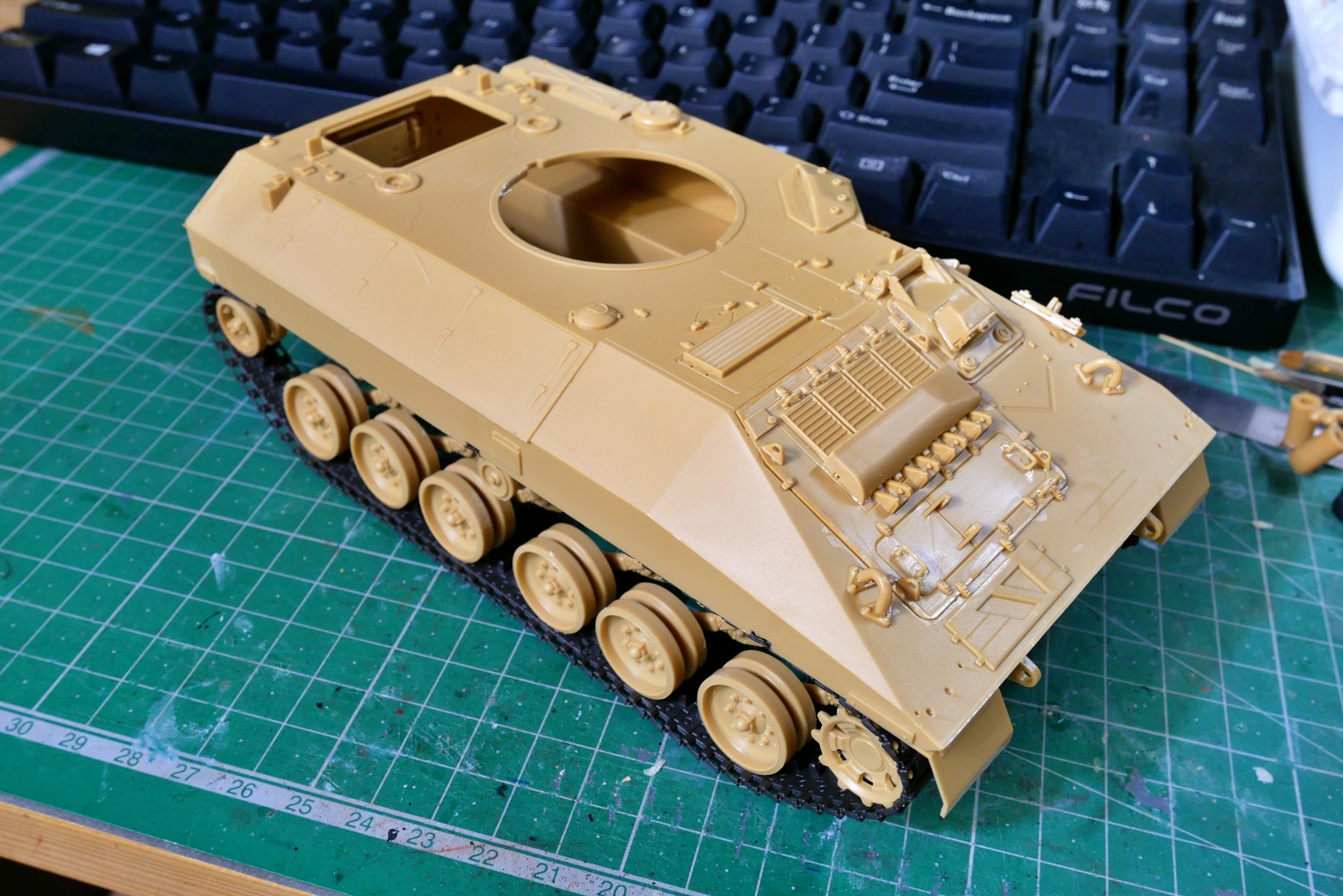
I am assembling various parts of the upper part of the AFV body. I was putting it together thinking it would be quite small, but I heard that 7 soldiers can fit in the room. At first glance, that’s about it. It is said that they can work in the radioactive contamination zone during the nuclear war.
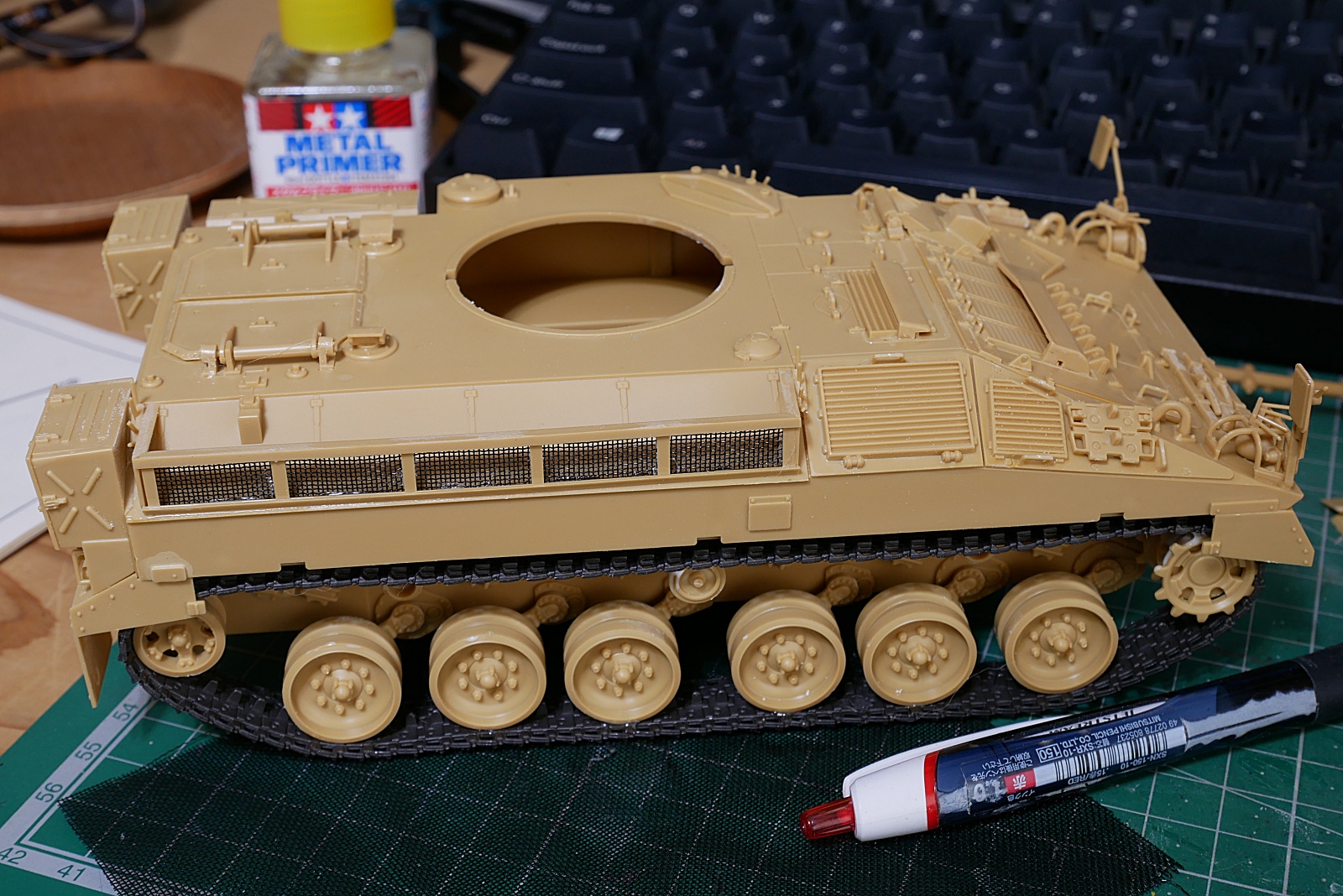
The assembly of the AFV body is complete. There were some places where the installation instructions for small parts were not clear. The instructions are hard to understand, but the parts fit well.
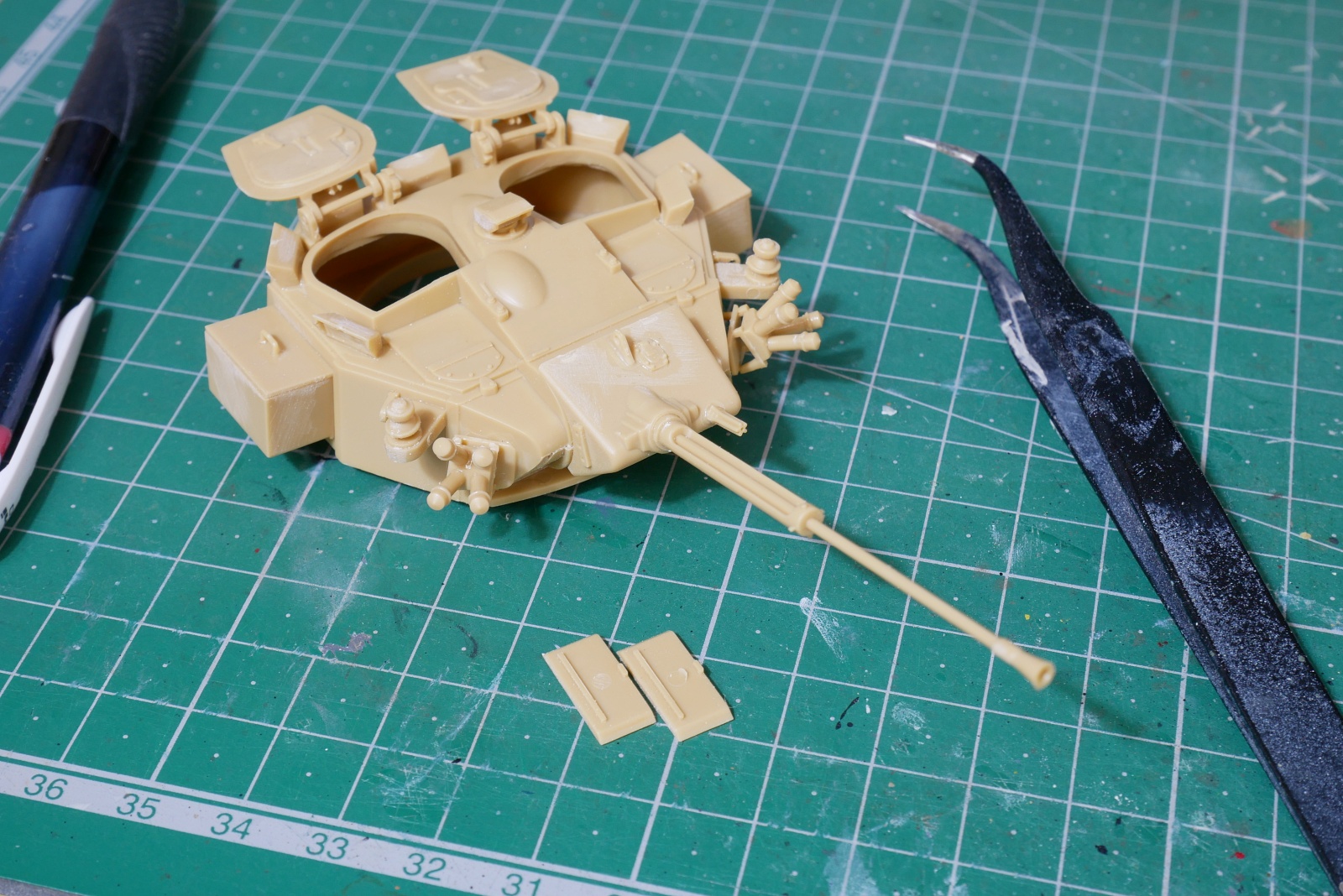
The turret is being assembled. It’s a cute little turret. Assemble the turret, attach the side armor, and put the loading equipment on it, and it’s completed. It seems that there is still a lot of work.
(2024/09/25)
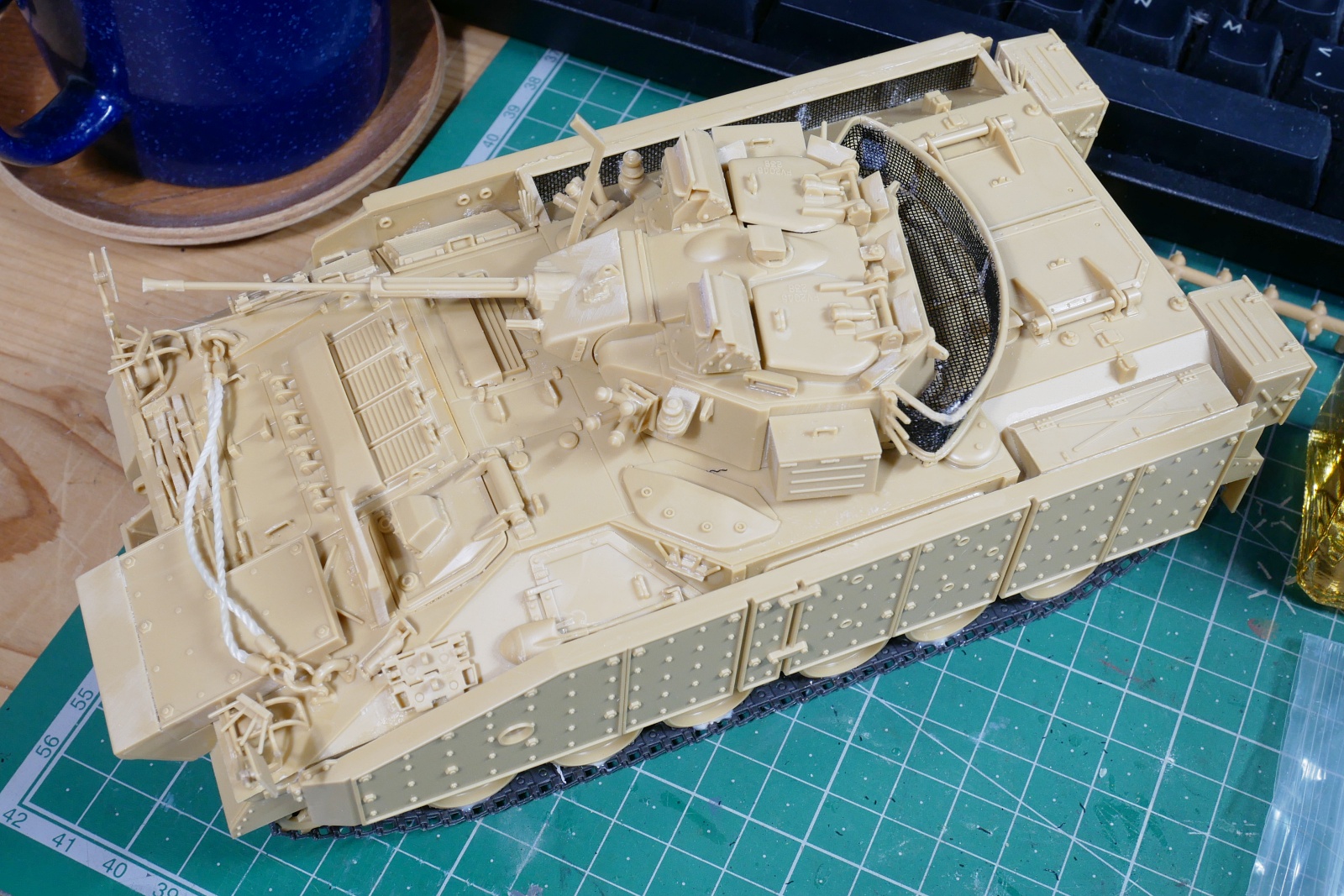
The assembly of the vehicle body is finished. There were quite a lot of parts. I thought it was simple because of the old kit, but not really. The track is belt-type, so the labor of assembling is light.
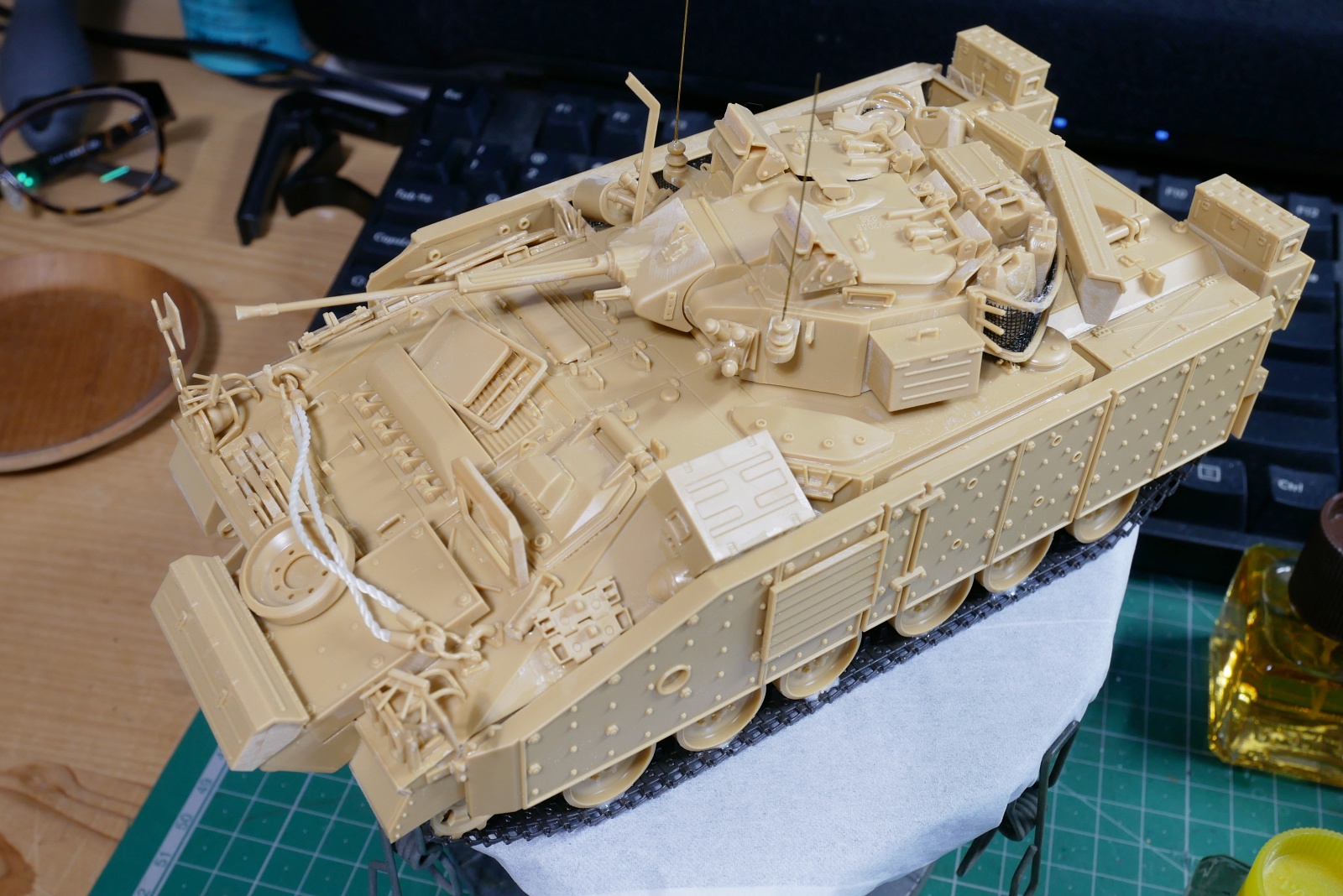
It’s interesting that this kit comes with a lot of things to load, such as a tool box, an ammunition box, an extra jellican and a cord reel. There was an odd thing that looked like a folding pipe chair. It is unexpectedly difficult to load the cargo without interfering with the turret rotation.
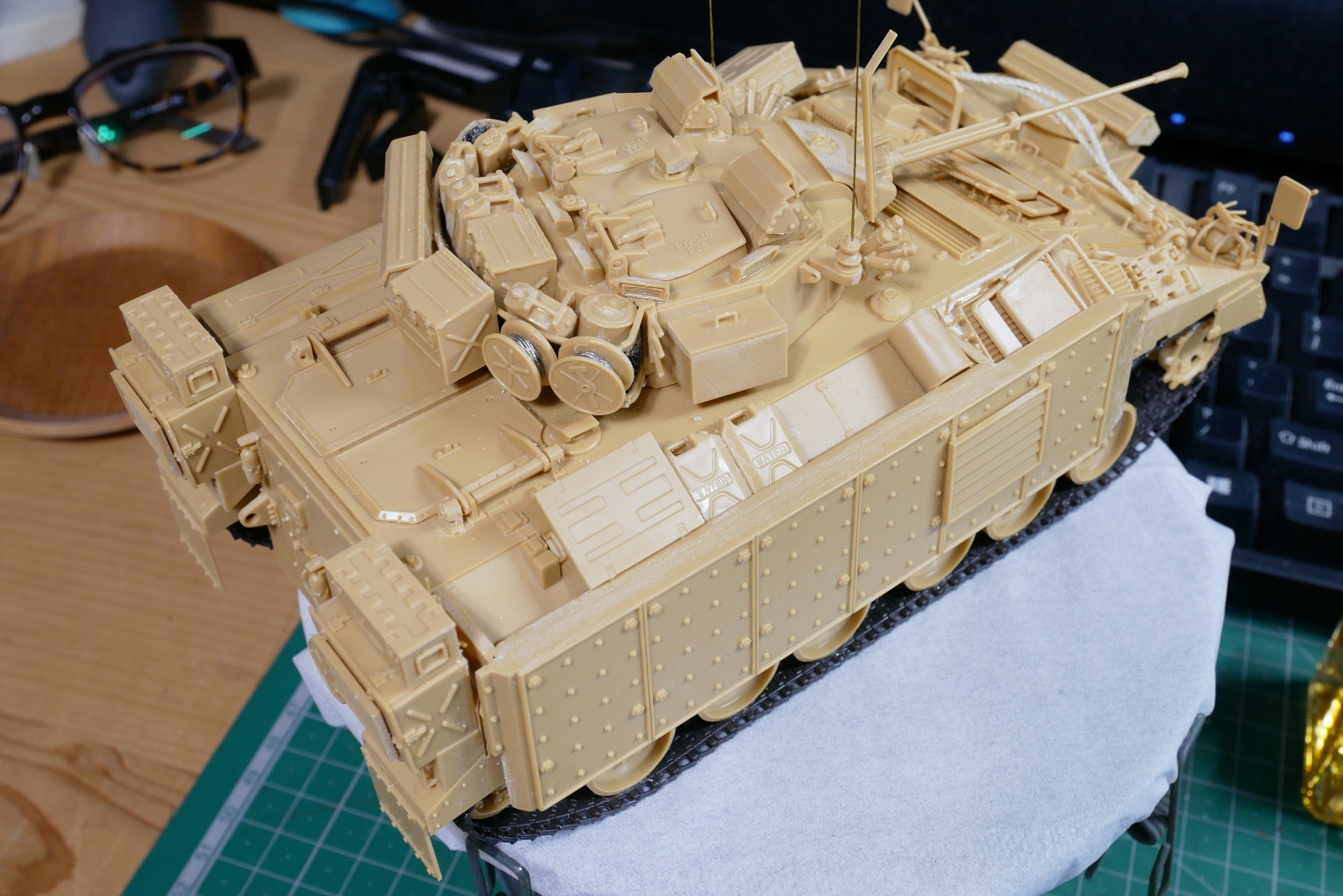
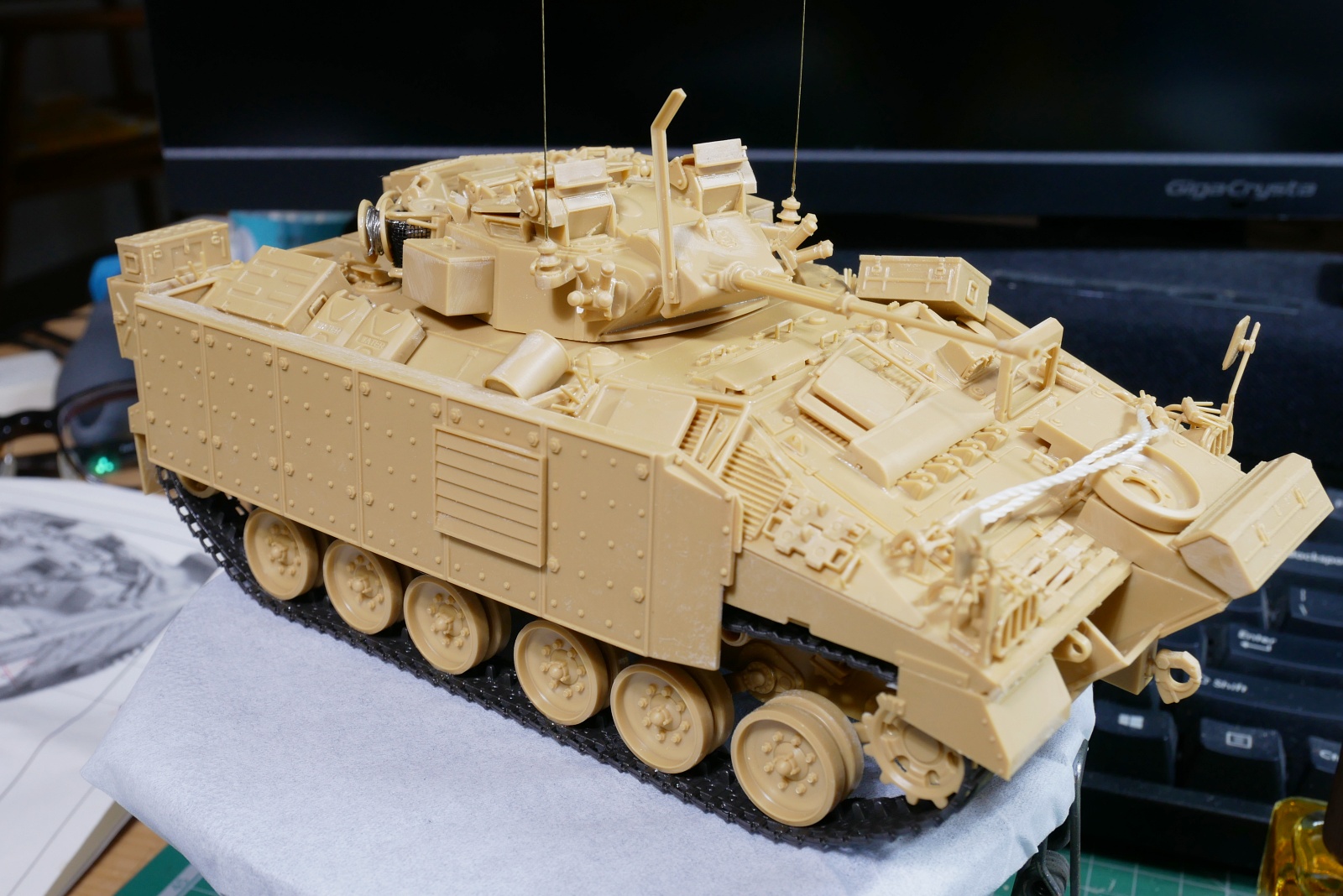
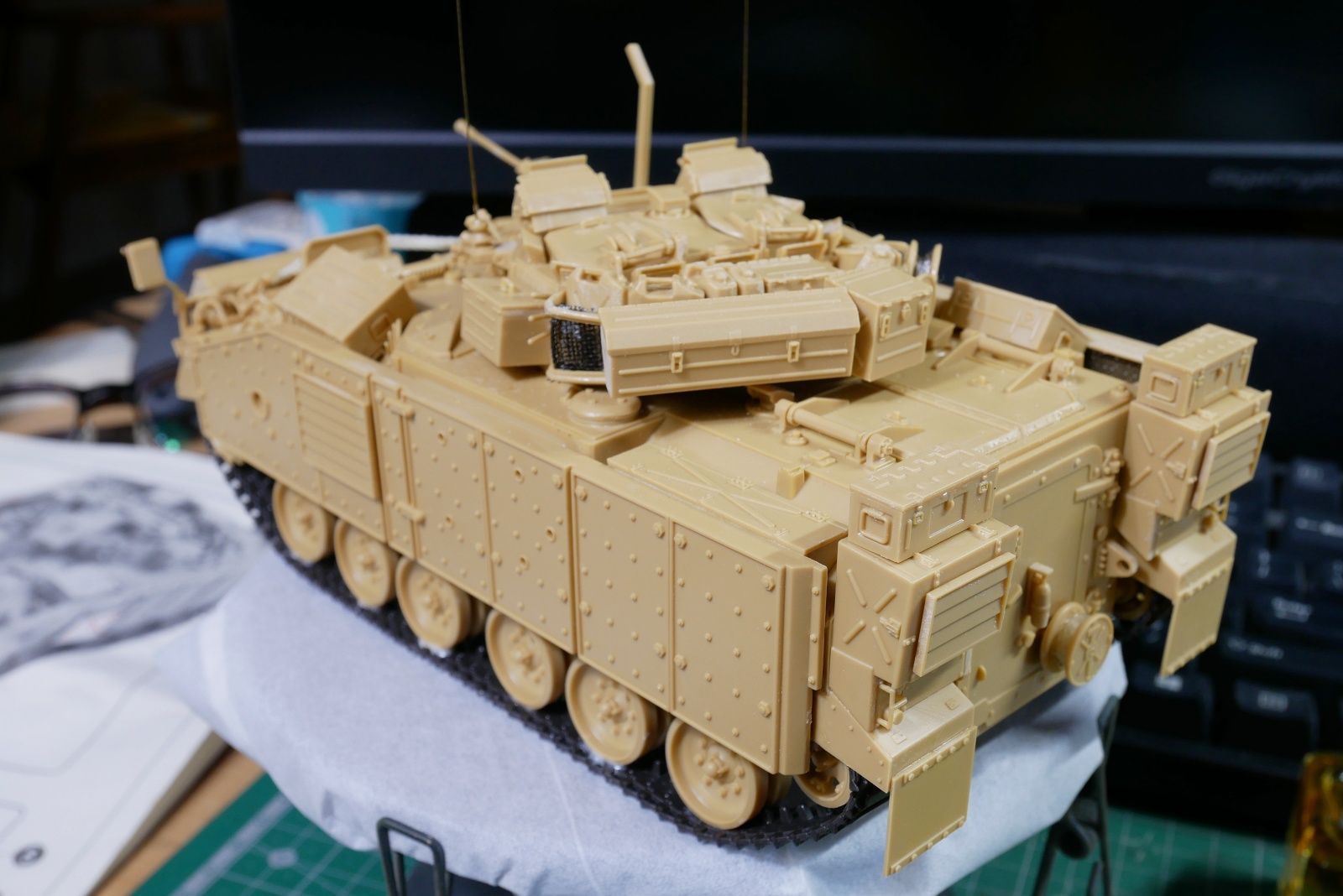
The rubber track is coated with primer to prevent the paint from peeling off. Tamiya’s primer seems to be quite strong in preventing peeling, so I hope it will be okay somehow.
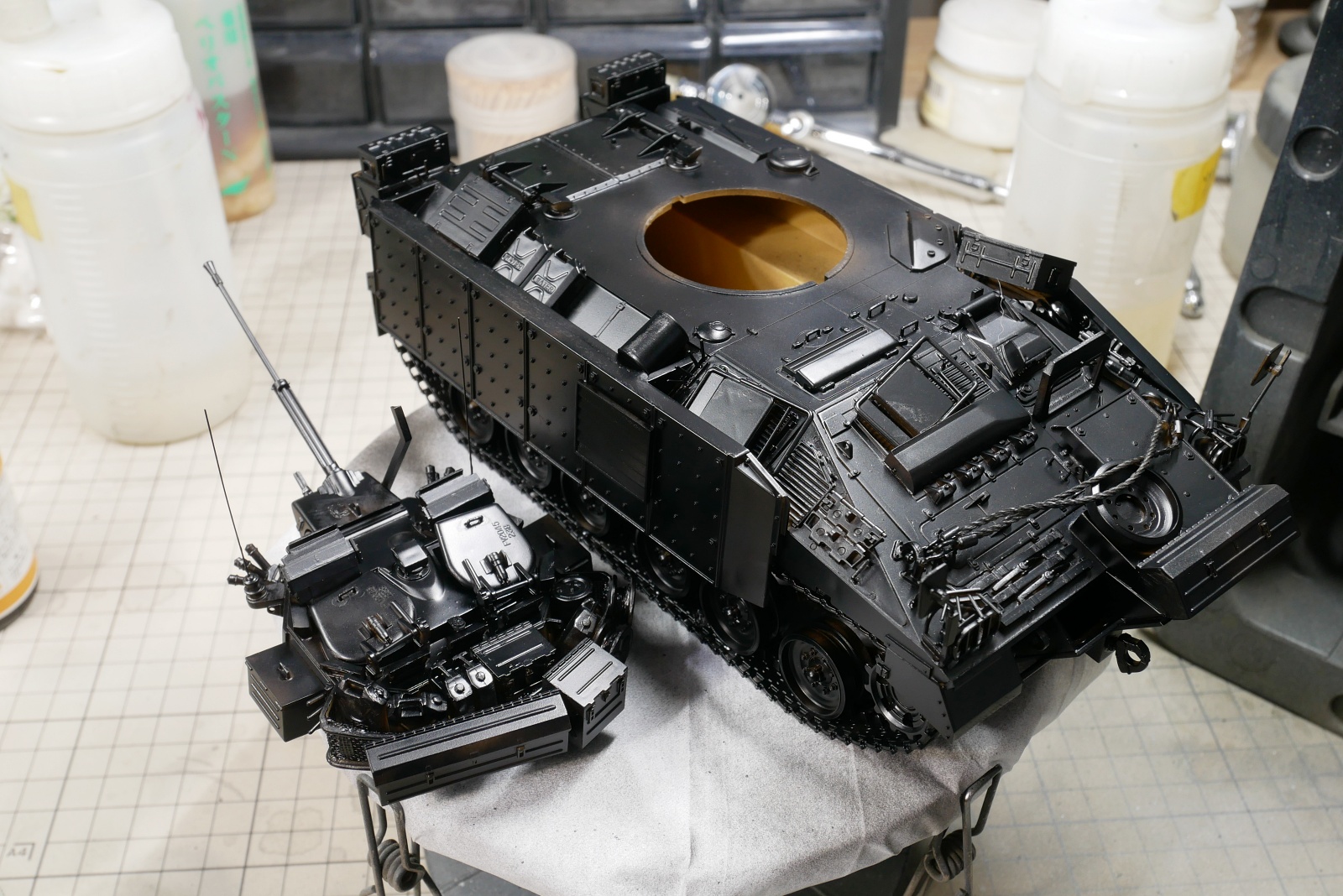
There are a lot of tiny deep spots, so I primed it with black.
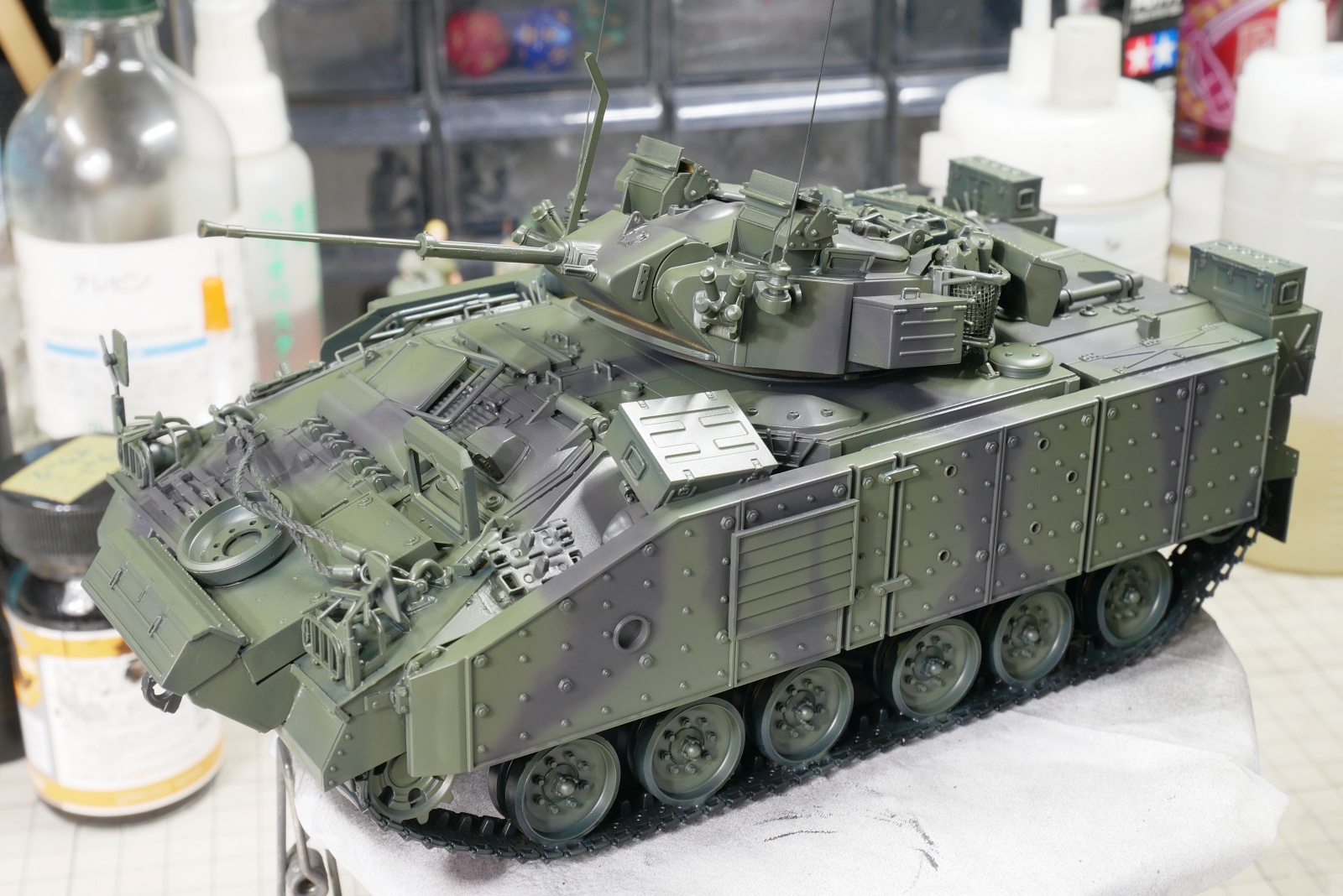
This time I’m going to make a vehicle for dispatch to Kosovo conflict, so it’s dark green and NATO black camouflage paint.
(2024/10/01)
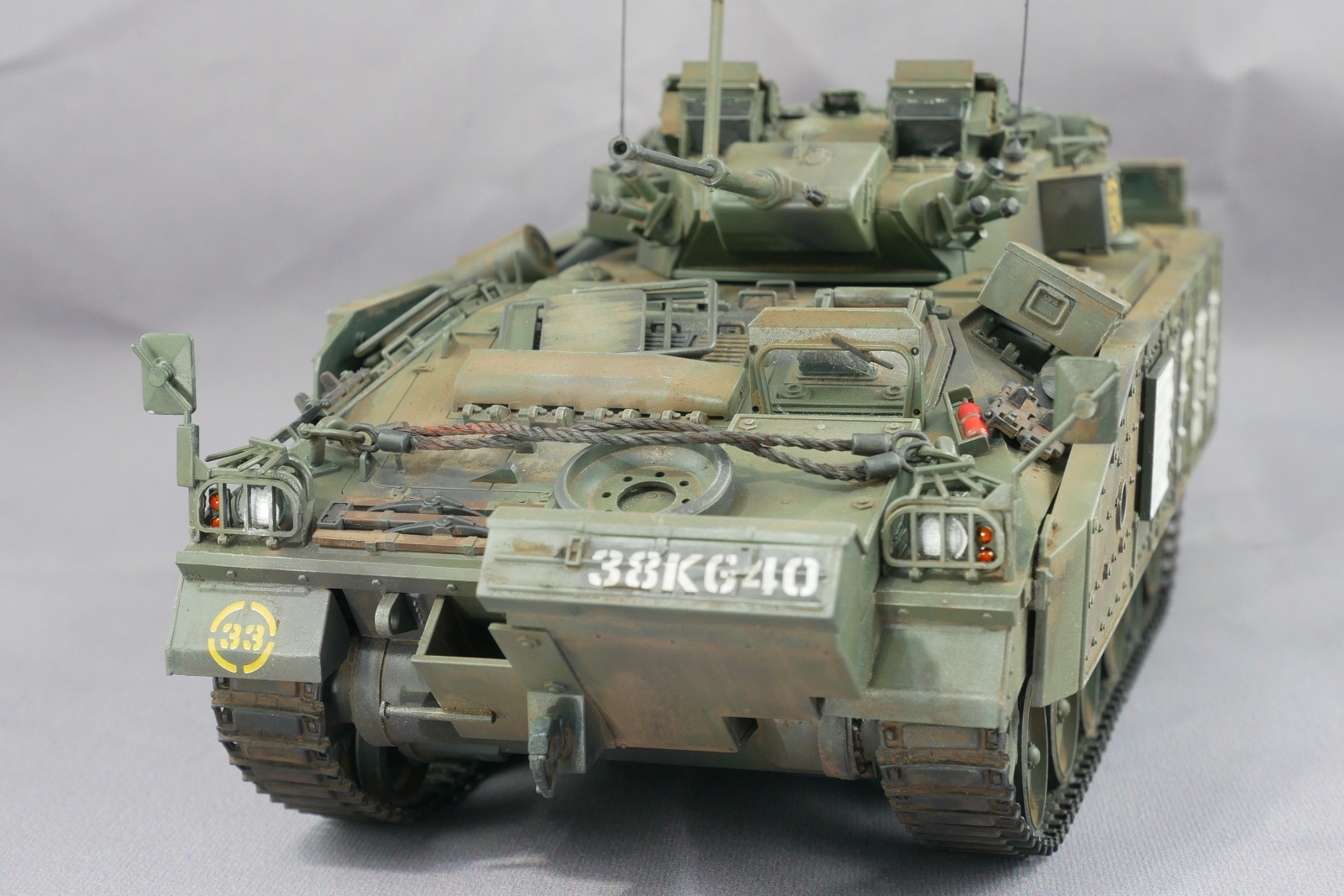
The Warrior infantry fighting vehicle is complete. In the kit’s box art, the turret of an enemy tank was blown off during the Iraq War, but this time I made a vehicle for the IFOR (Peace Implementation Force) dispatched by the British army during the Kosovo Conflict.
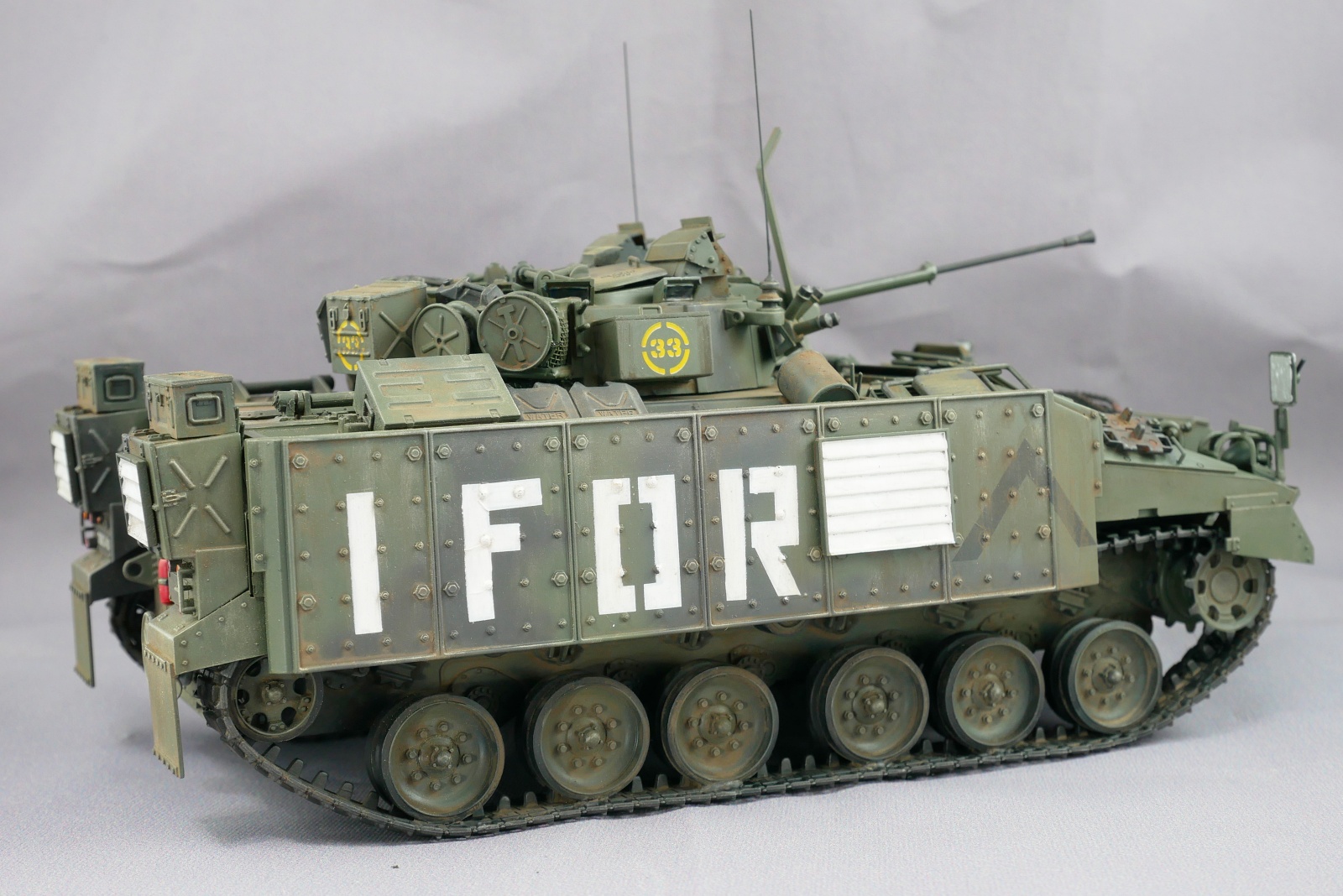
The big white decal is stuck on the uneven bolts, so it’s hard to do. I applied it forcibly with a strong mark softer and touched up the broken part with a brush. There are some vertical and horizontal misalignments, but it is within acceptable range.
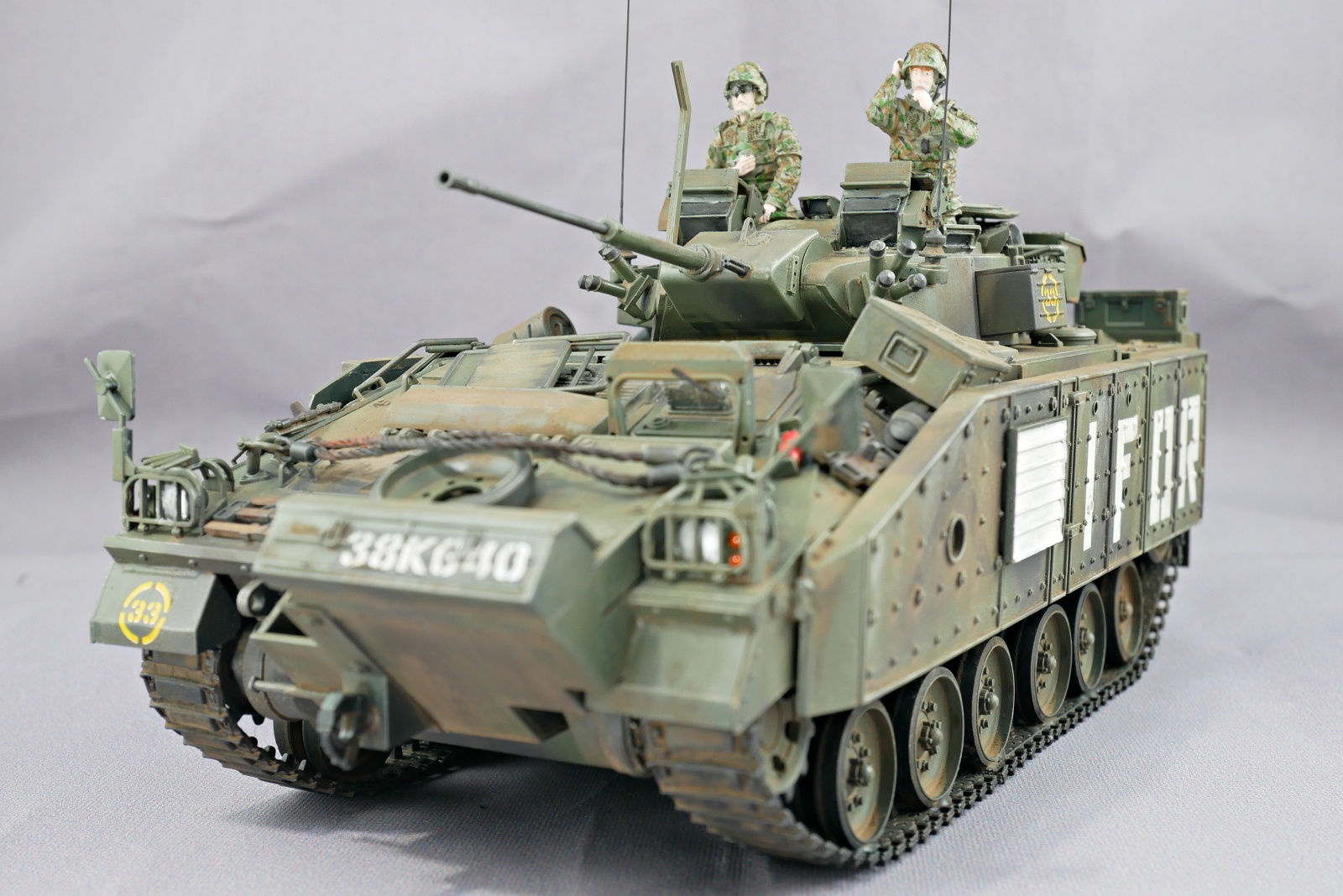
I put two infantry fighting vehicle crews on board. I’m not sure, but it looks like the crew of an infantry fighting vehicle is more likely to be wearing infantry headgear than a tank soldier’s helmet. But there are very few British infantry figures on the market. I used to stock Master Box figures, but unfortunately I made all of them when I made Land Rover military vehicles. I should have left some of them…
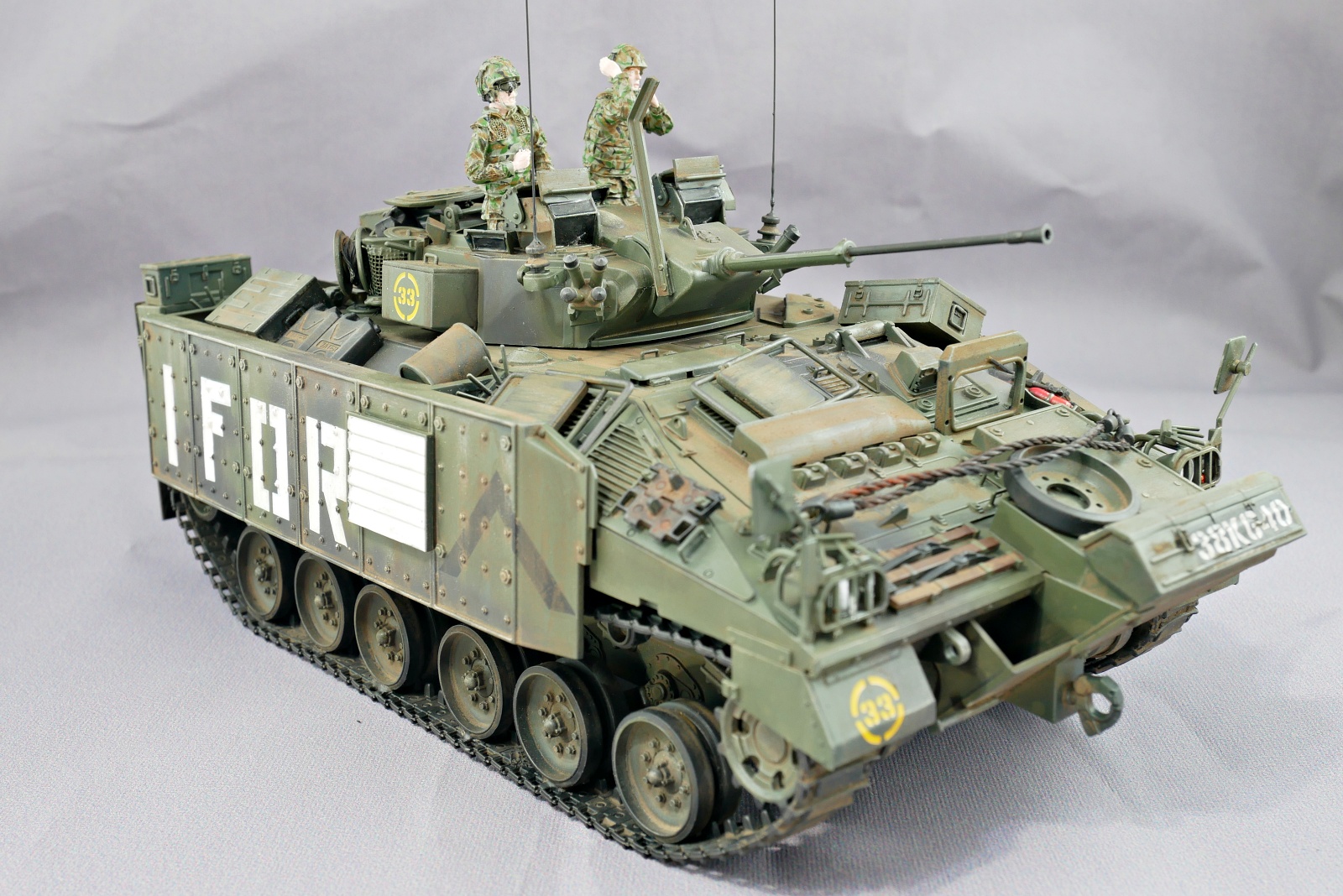
So I had a Canadian army figure at home, so I forced it on. The shape of the helmet is also similar to that of a infantry, so I think it looks more like it after painting. I don’t care about details at this time.
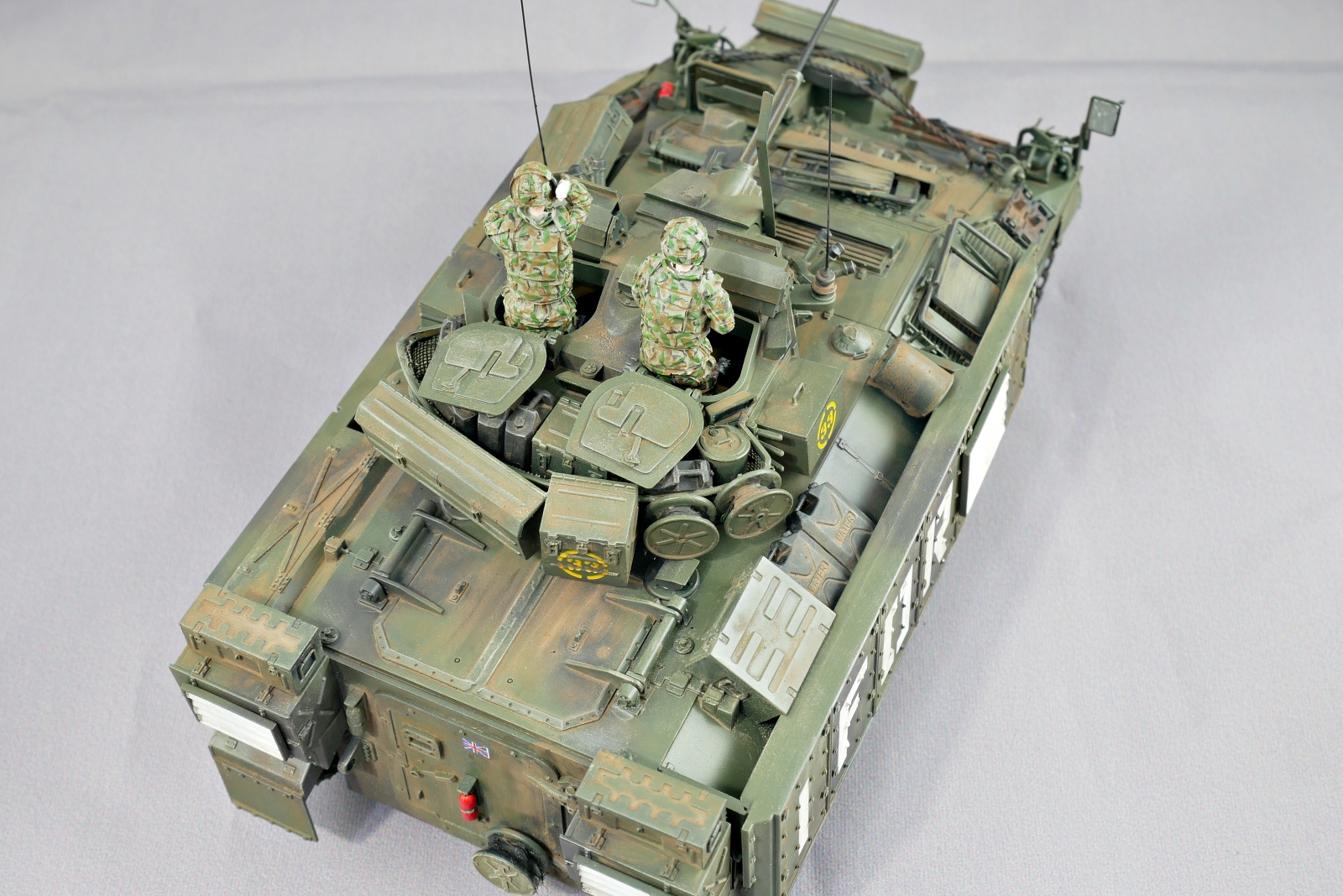
Since the figure had his hand on the hatch, the position of the foot was automatically determined. I cut and pasted the leftover parts of the kit to match it and put a stand inside the car. The figures are just standing up.
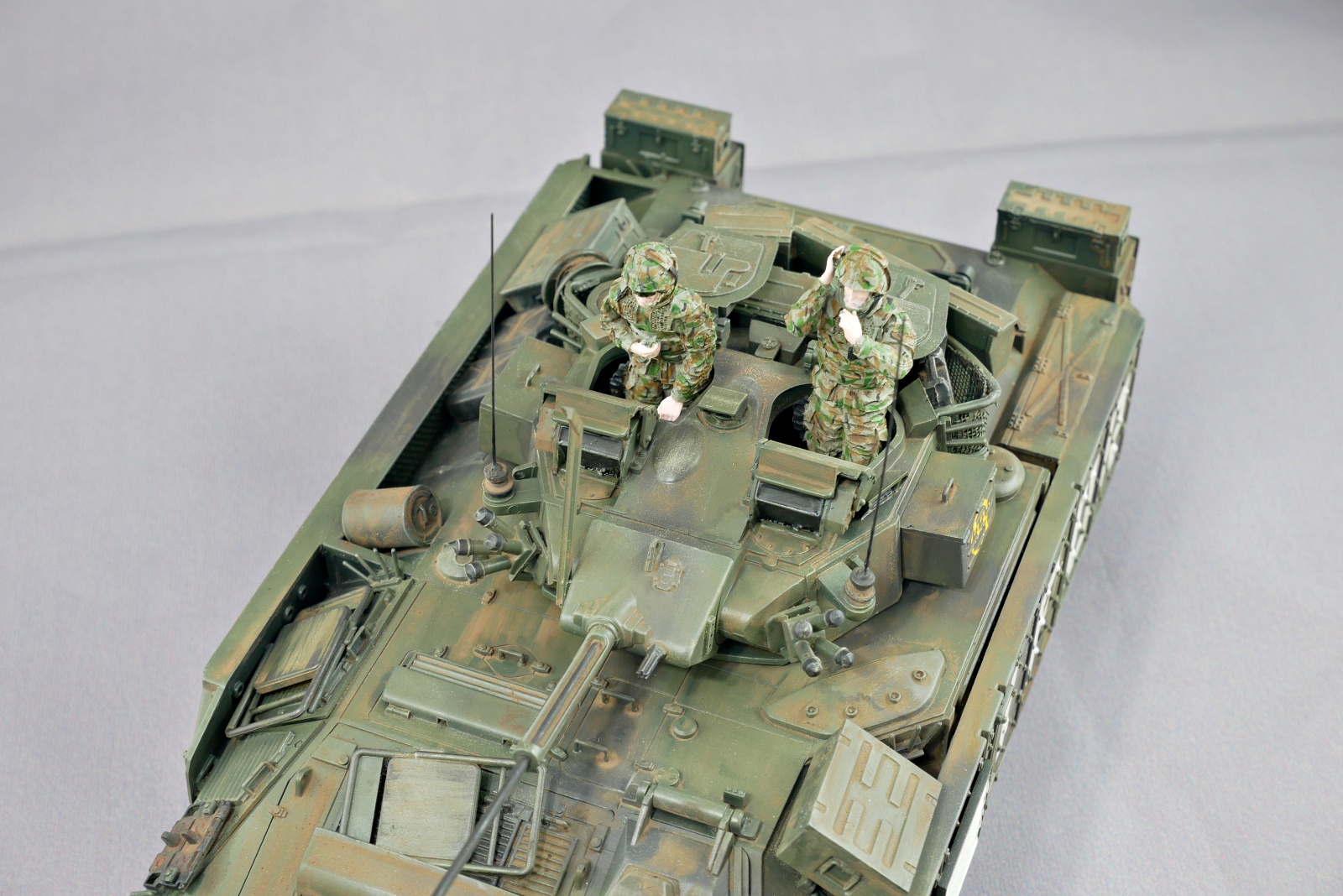
I thought the camouflage painting of the figures went relatively well this time. It matches the color of the AFV, and the color will blend in with the forests and grasslands of Europe.
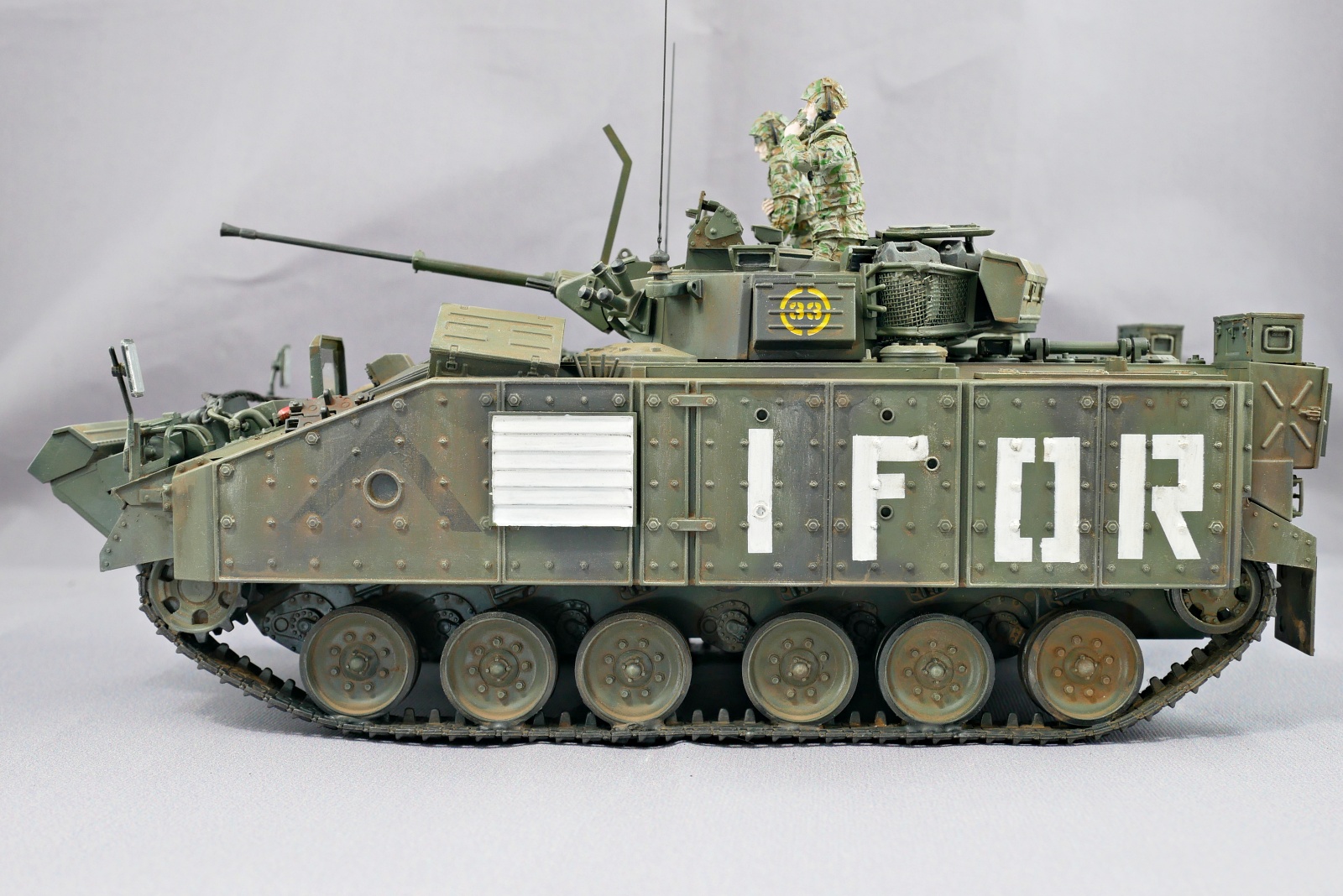
It has four plates to identify friend and foe. This is painted white again so it will stand out from a distance. It’s not for the purpose of fighting, but for peacekeeping, so it might be better if vehicles stand out a little.
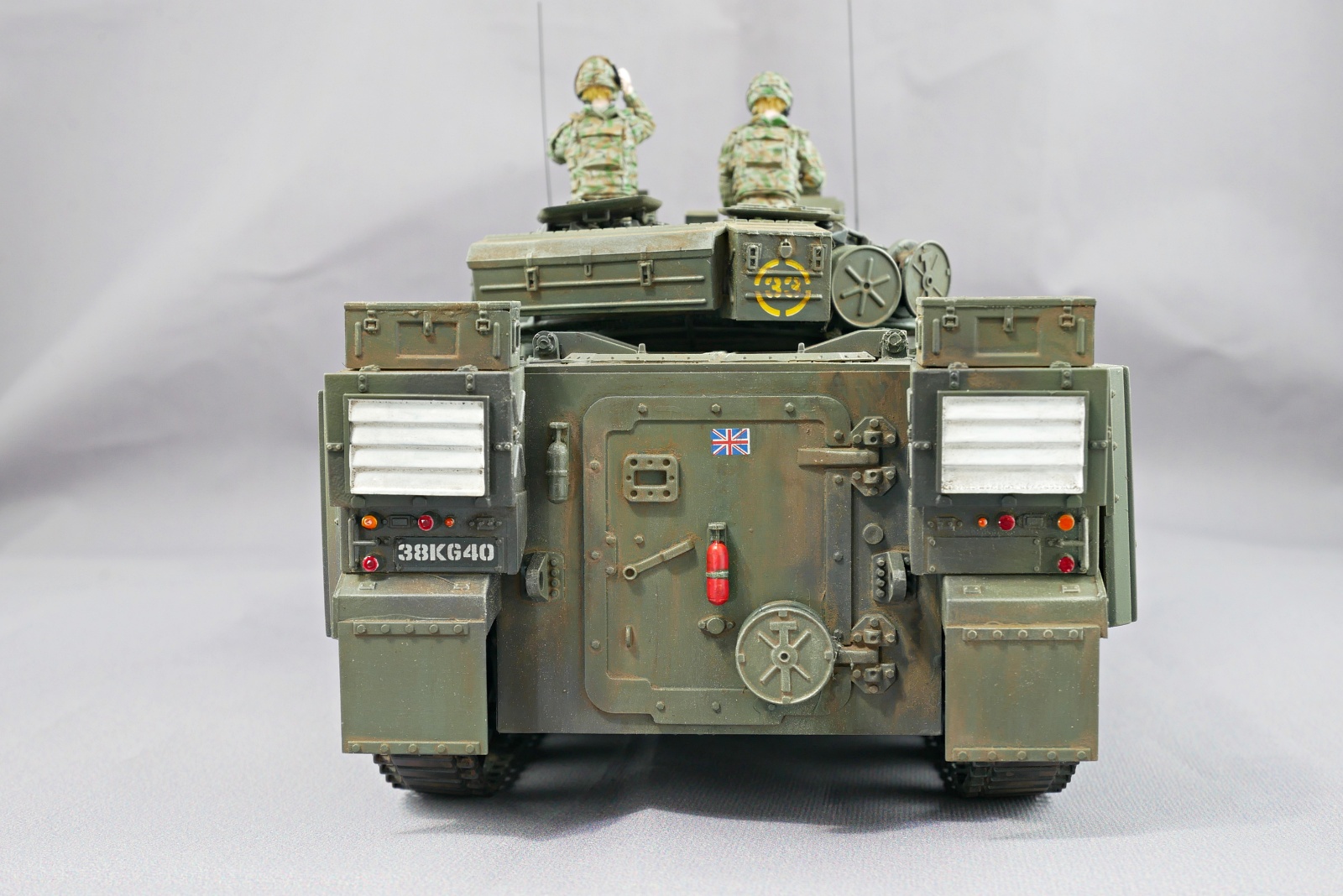
There are several red and orange lights on the front and back, so it is a nice accent and looks cool.
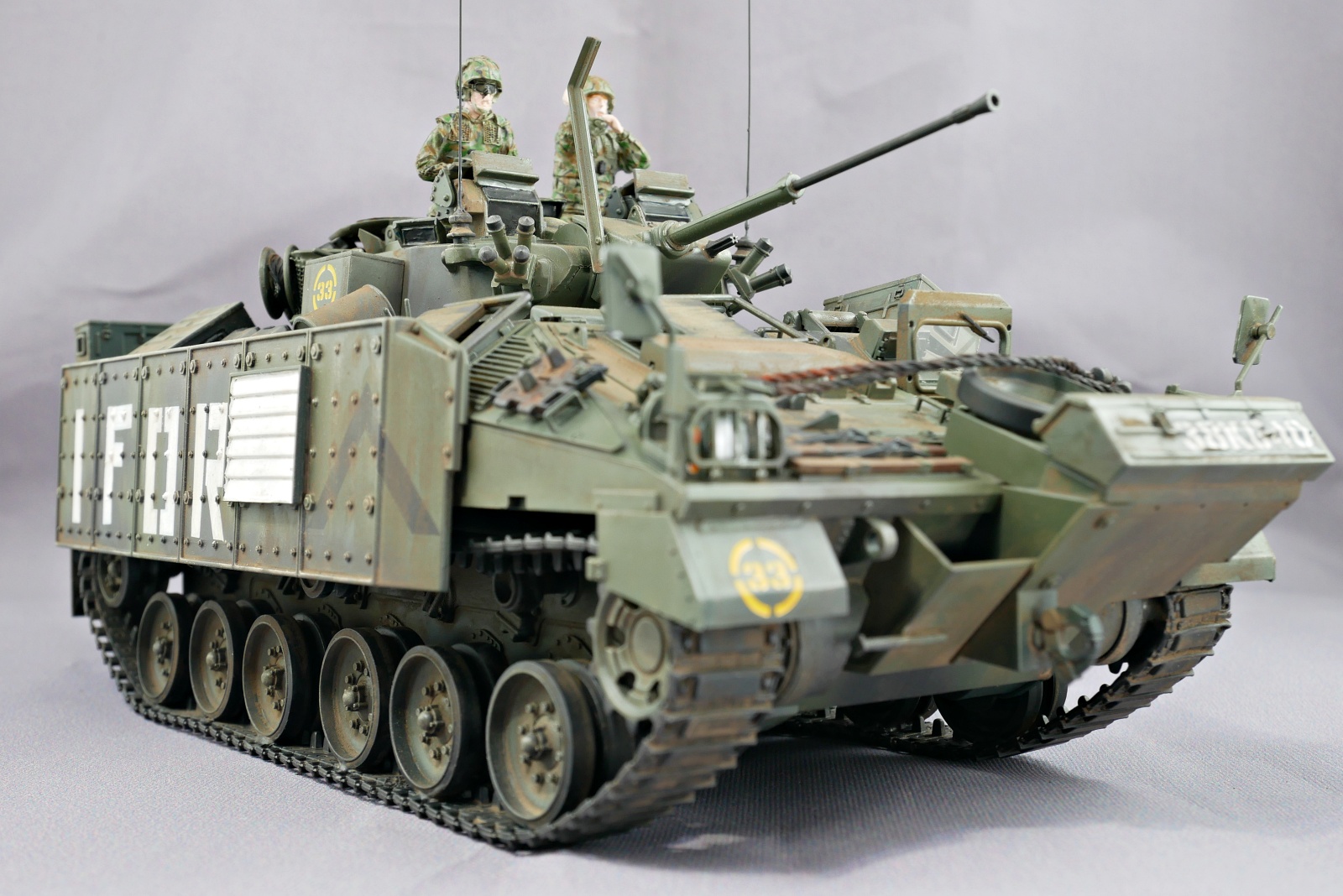
It has a wire cutter installed, and it seems to pay attention to the safety of the crew exposed from the hatch. If they don’t have this, they might get cut off by a horizontal wire on the street.
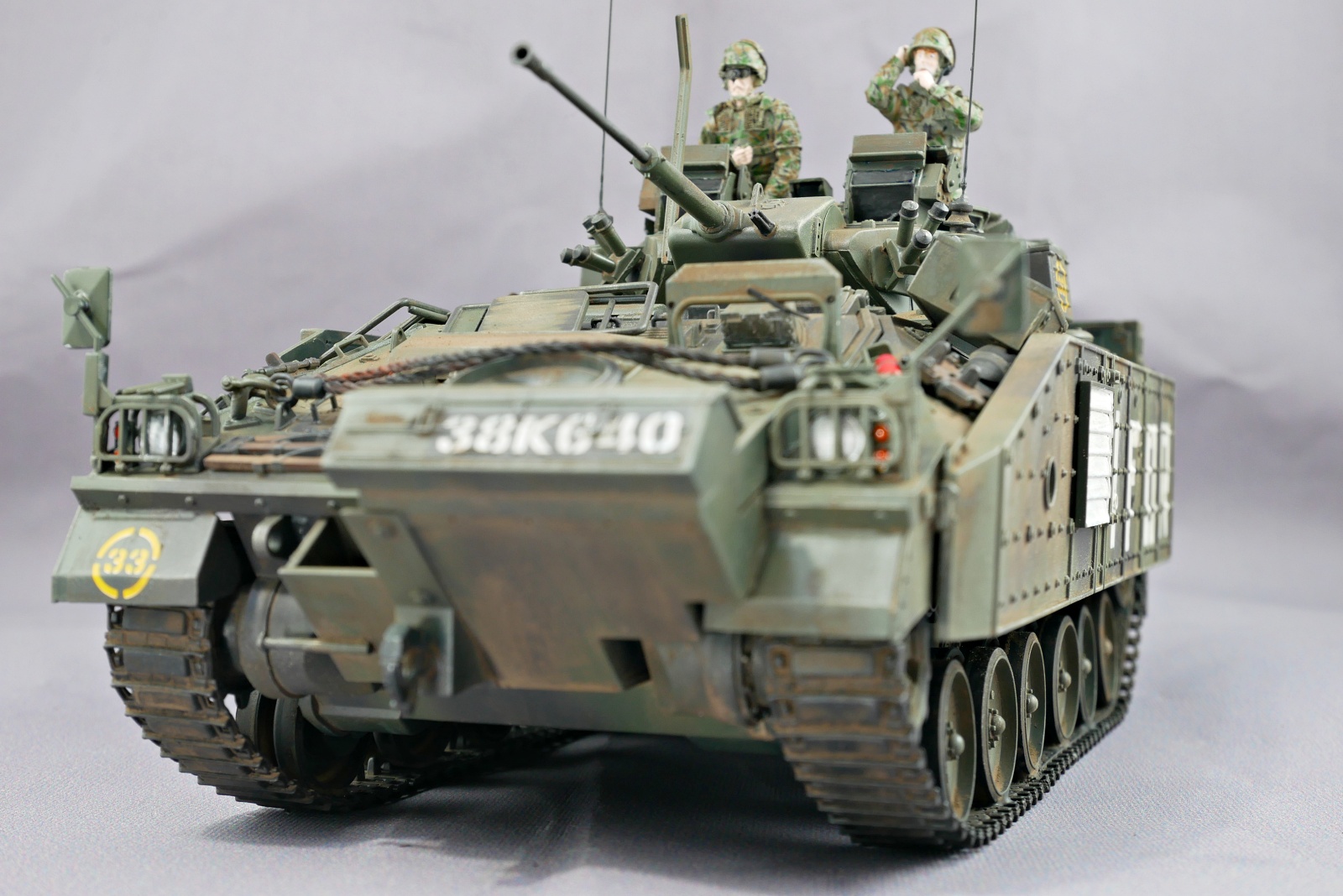
This time, I think some of the decals are a little different from the actual AFV. I added it to the part that looks outstanding and cool. This time, I was able to paint the rubber track well, and I was quite satisfied just to be able to finish a minor British AFV (for the plastic model industry) that I had been piling for a long time.
(2024/10/05)

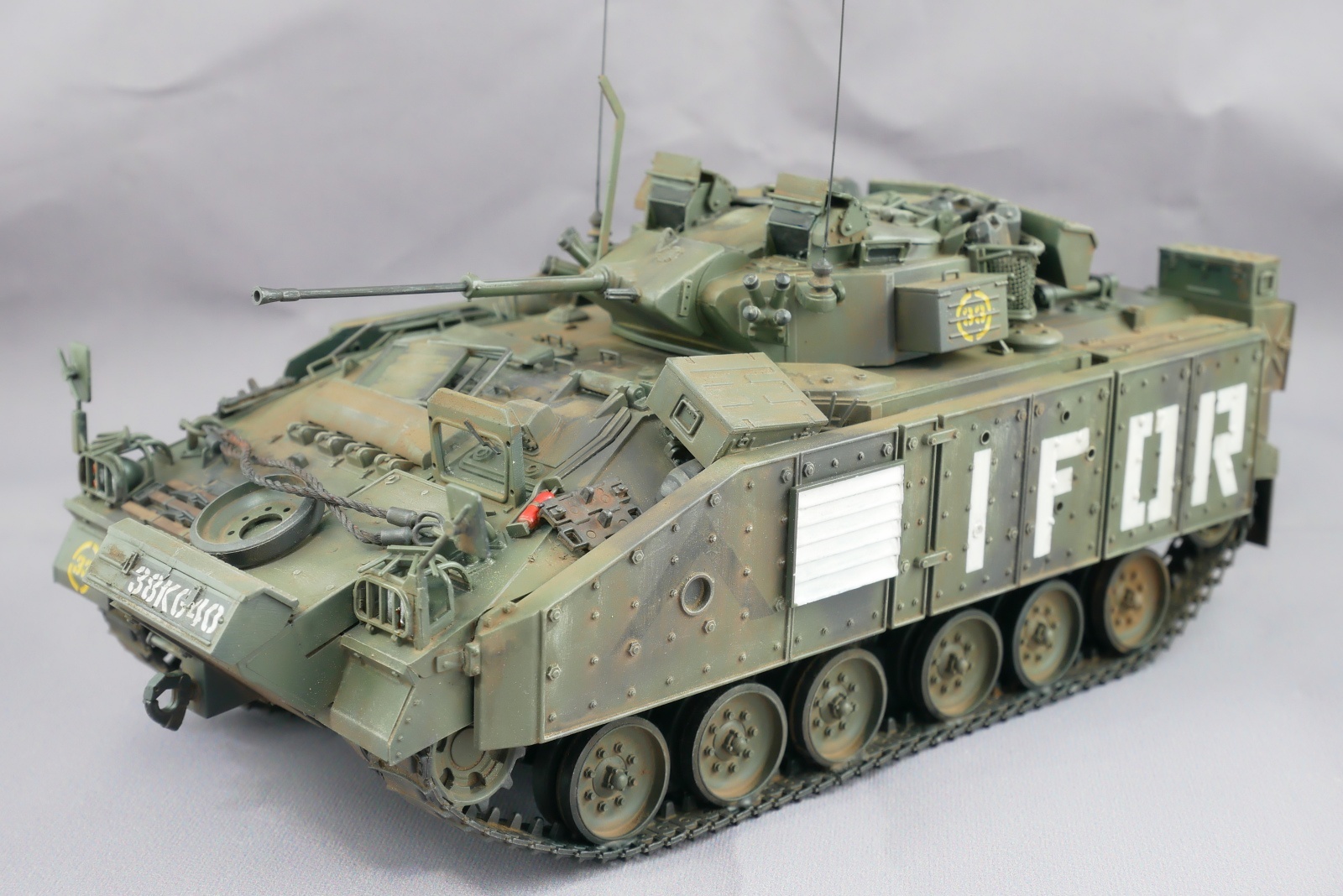
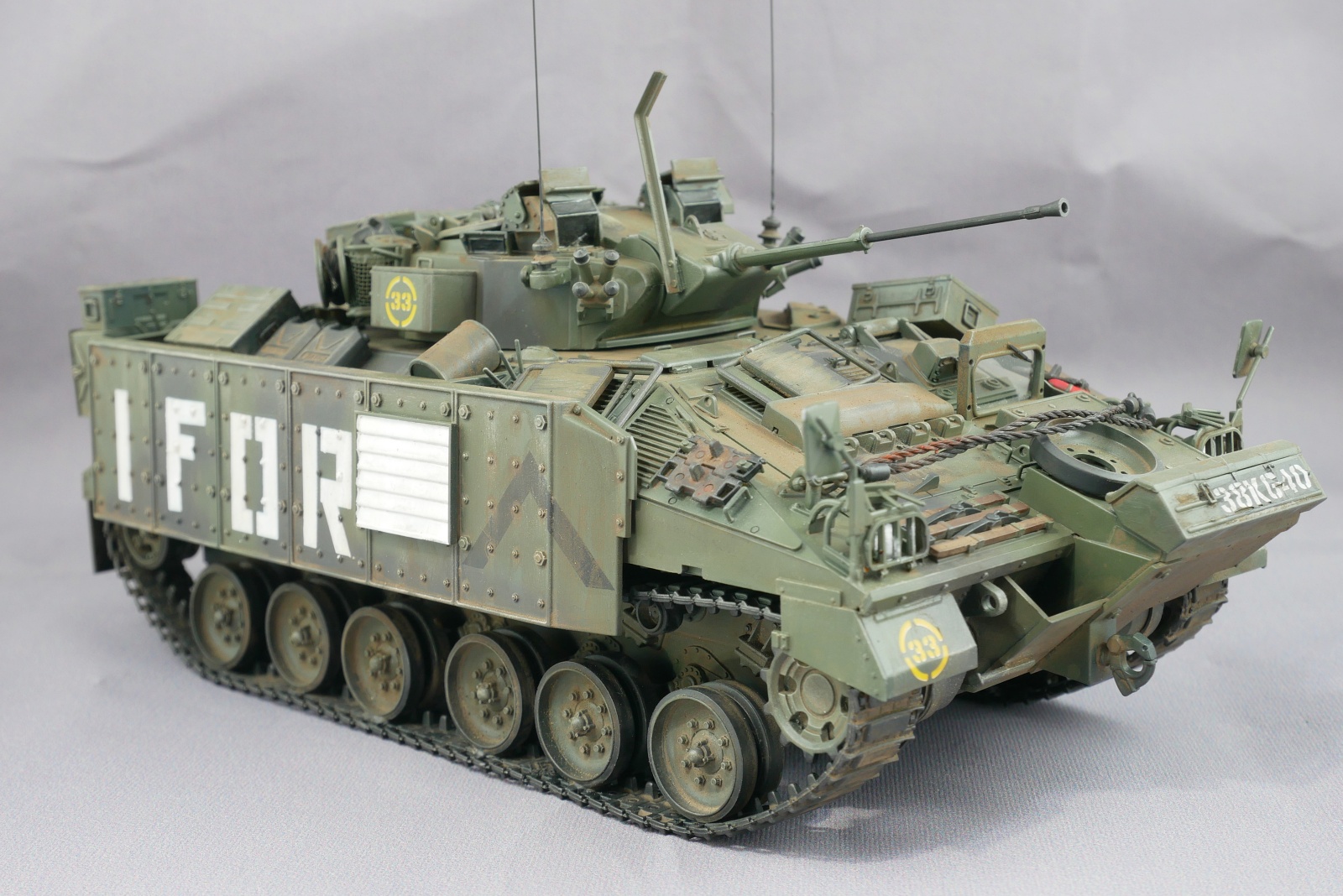
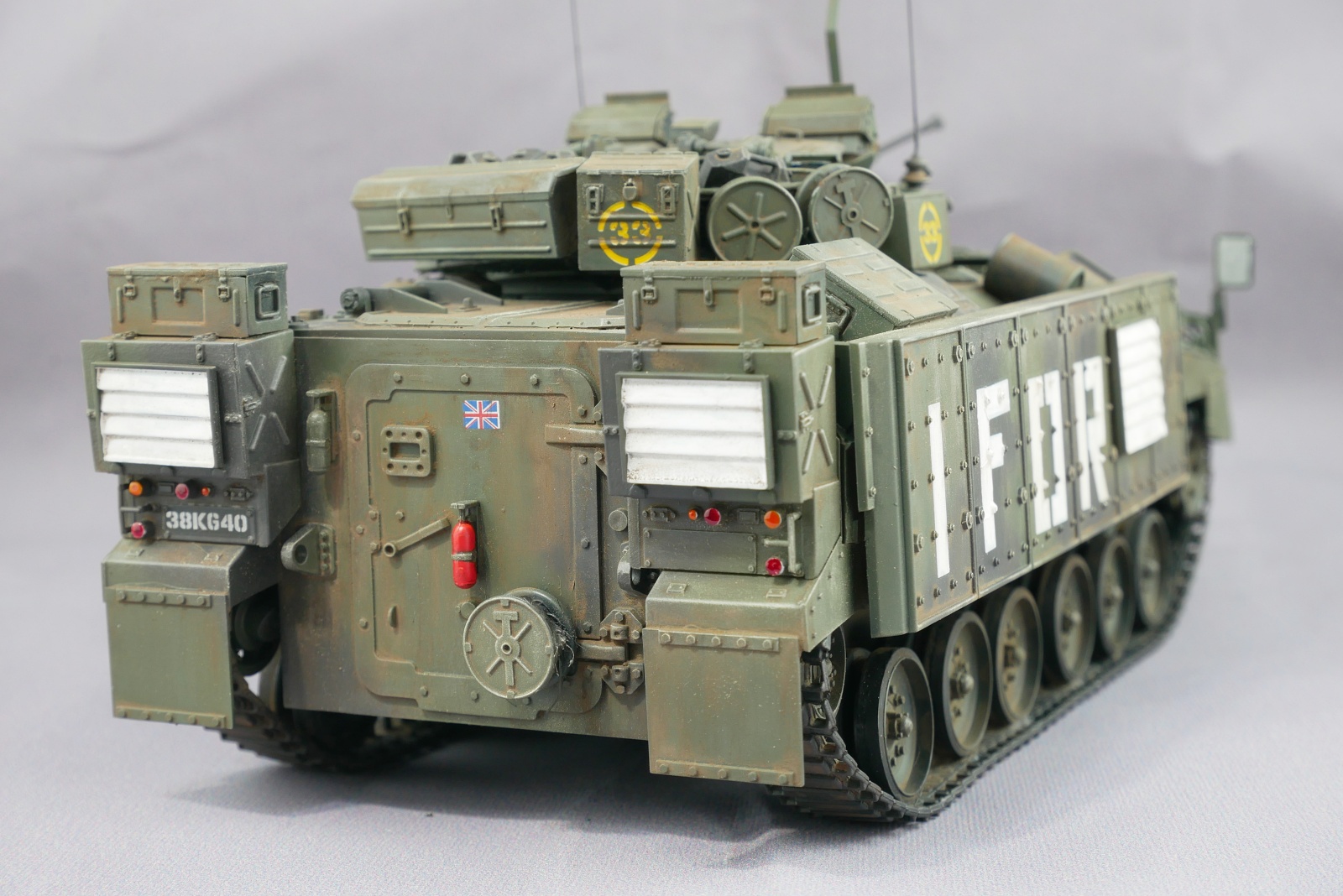
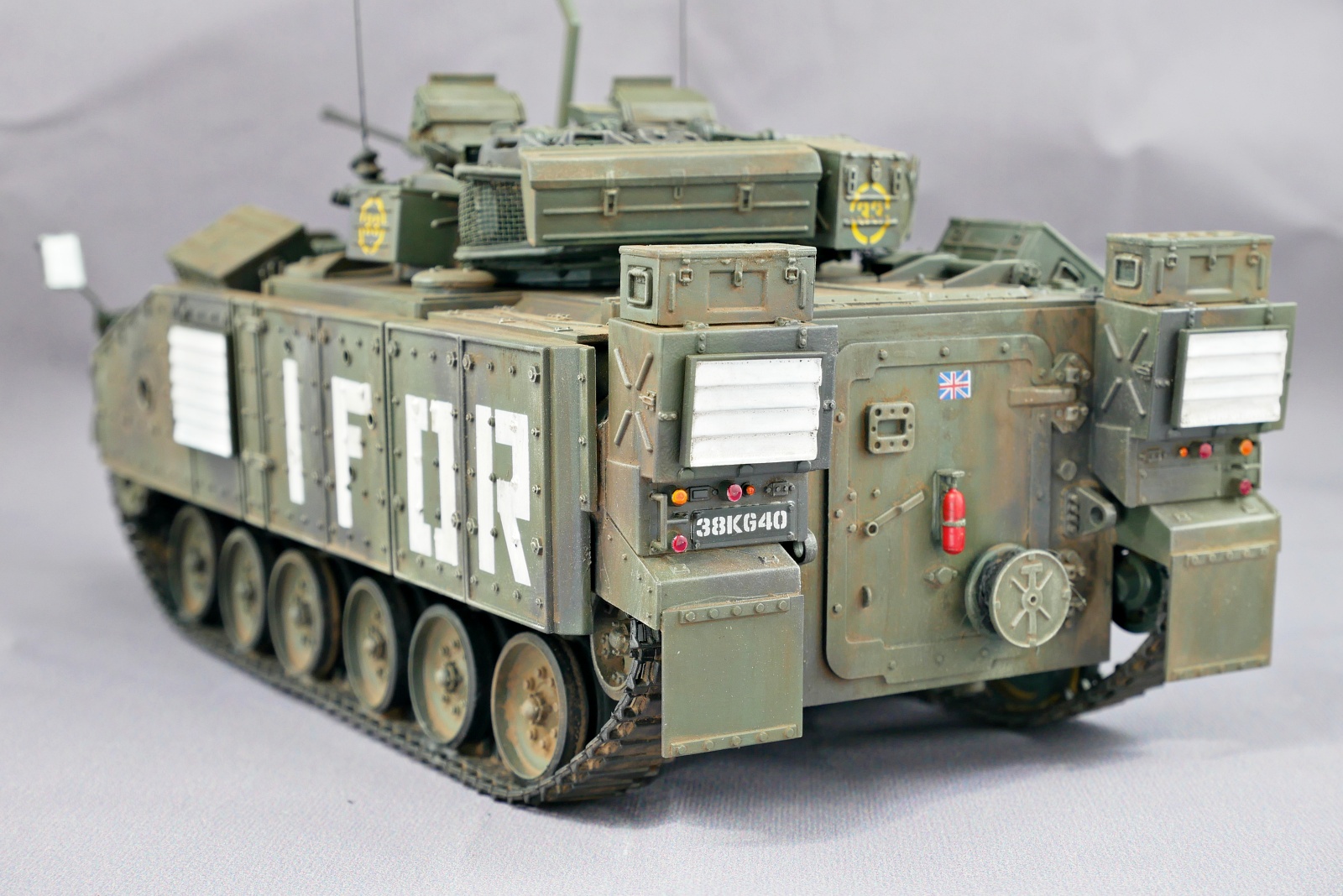
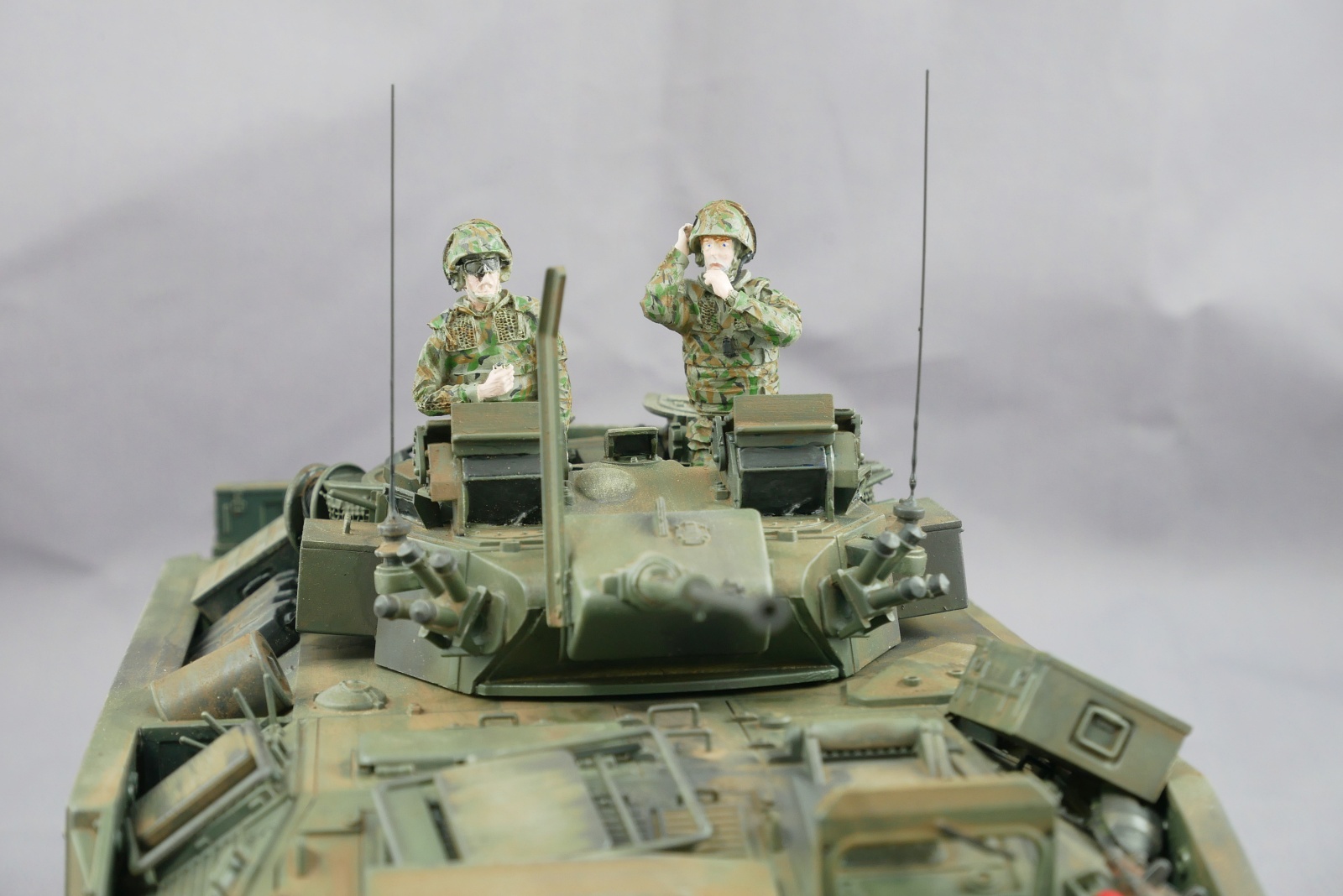
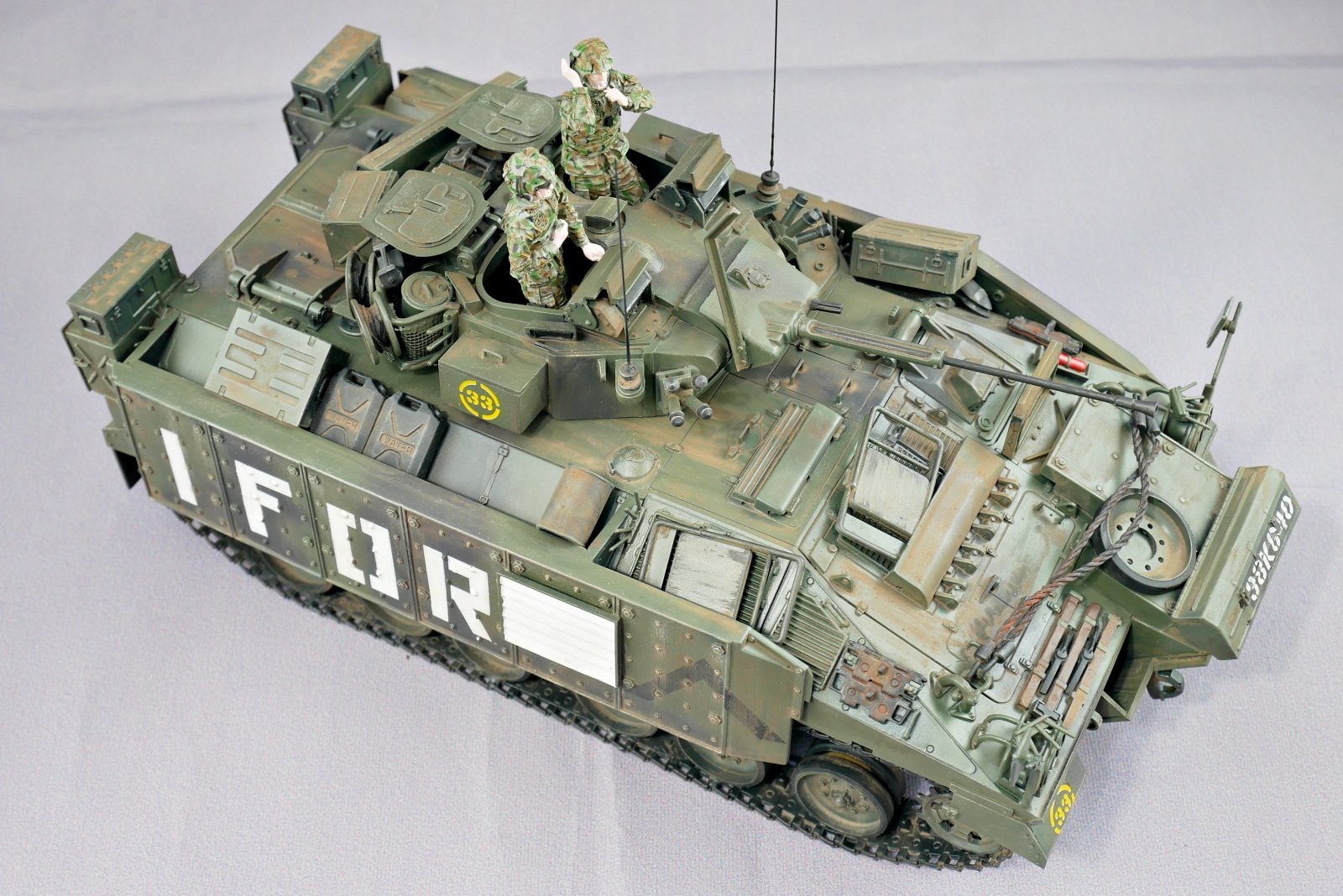
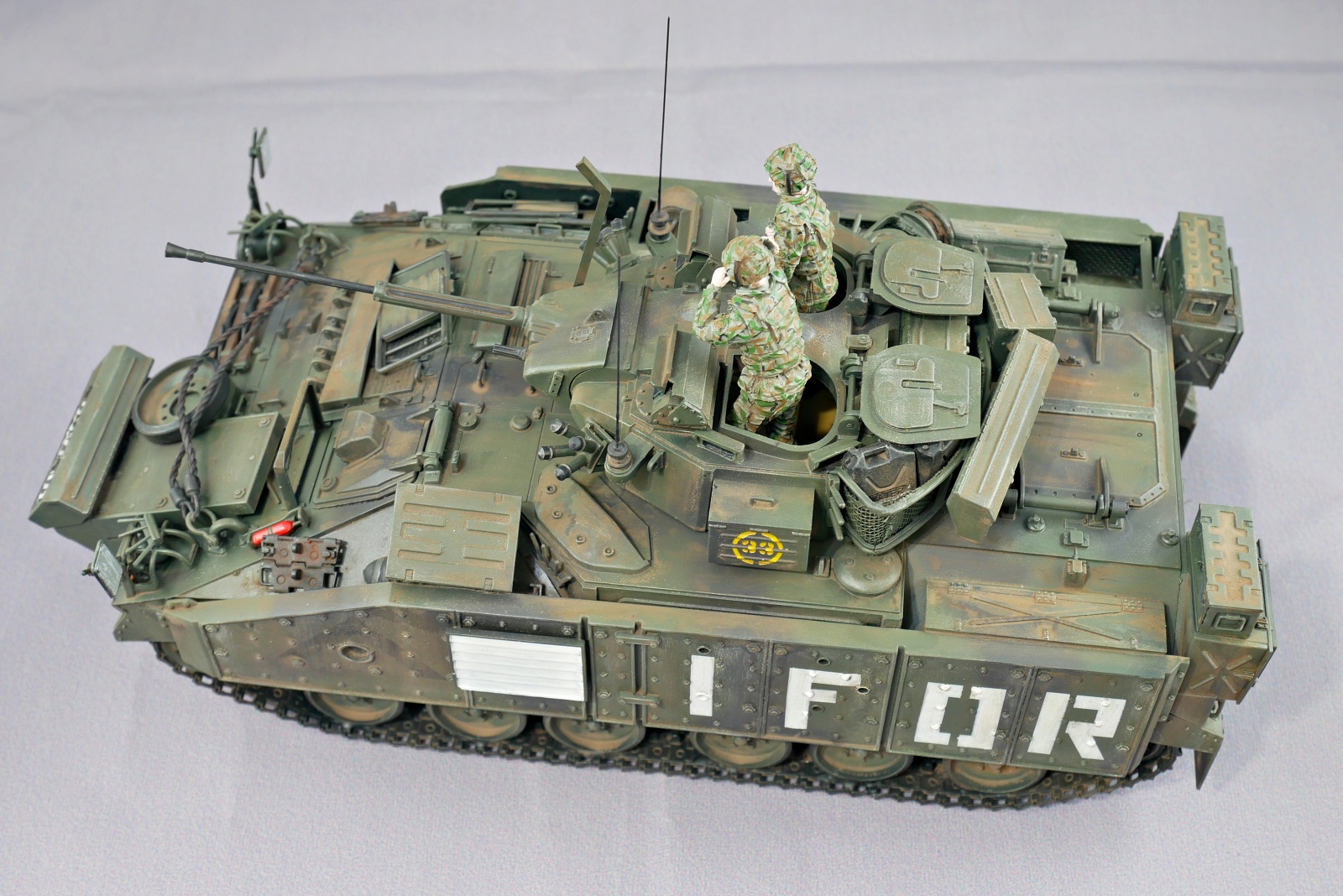
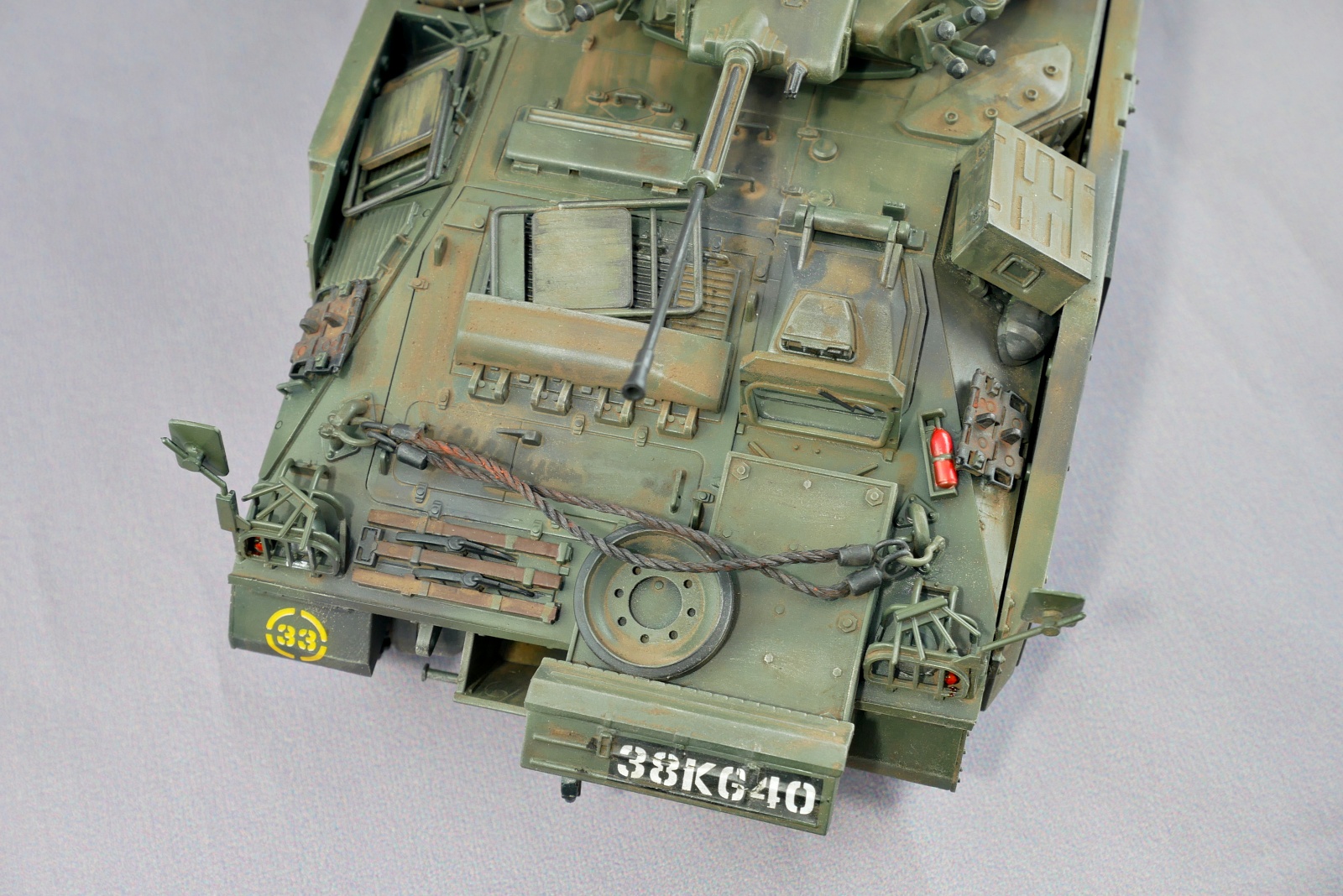
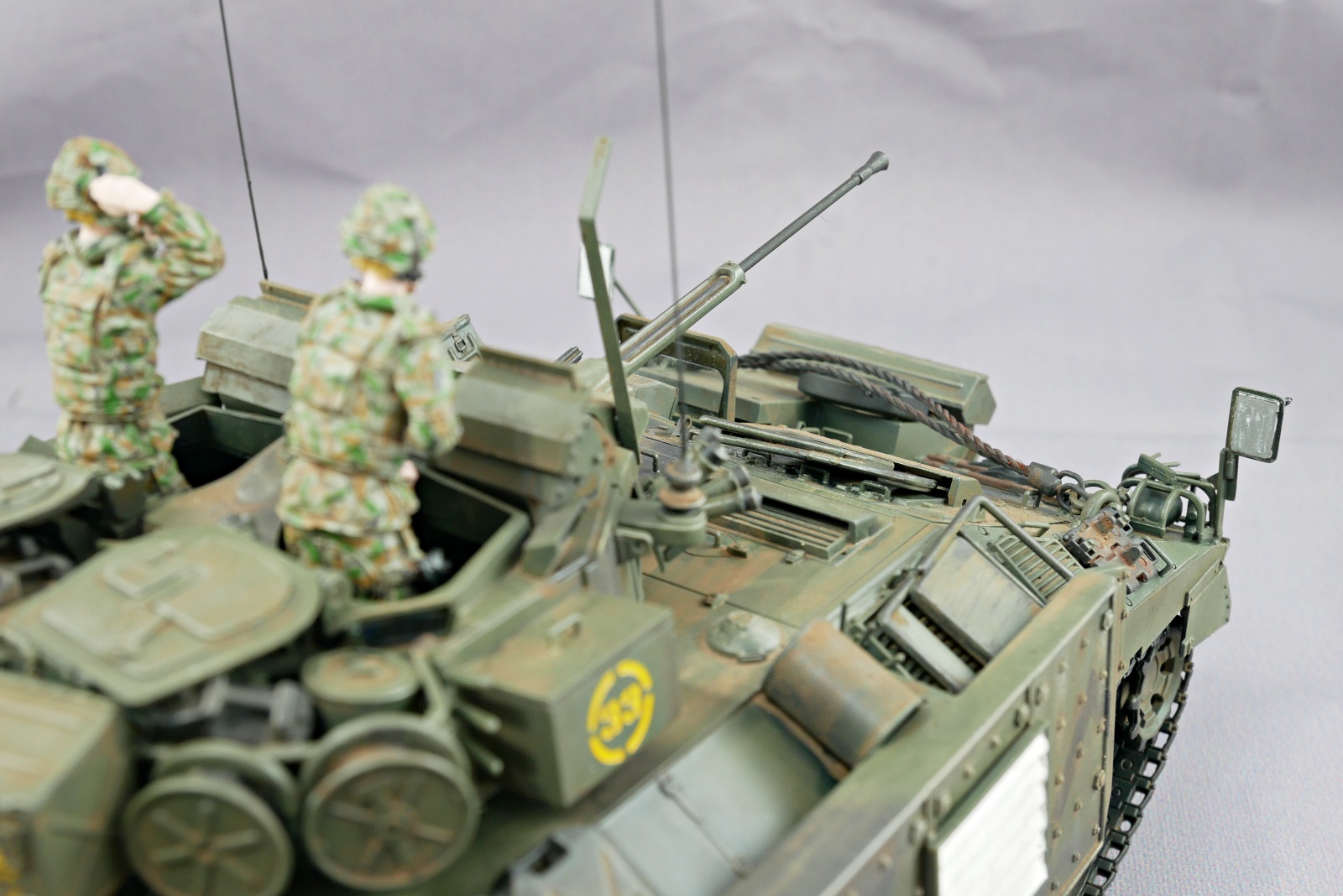
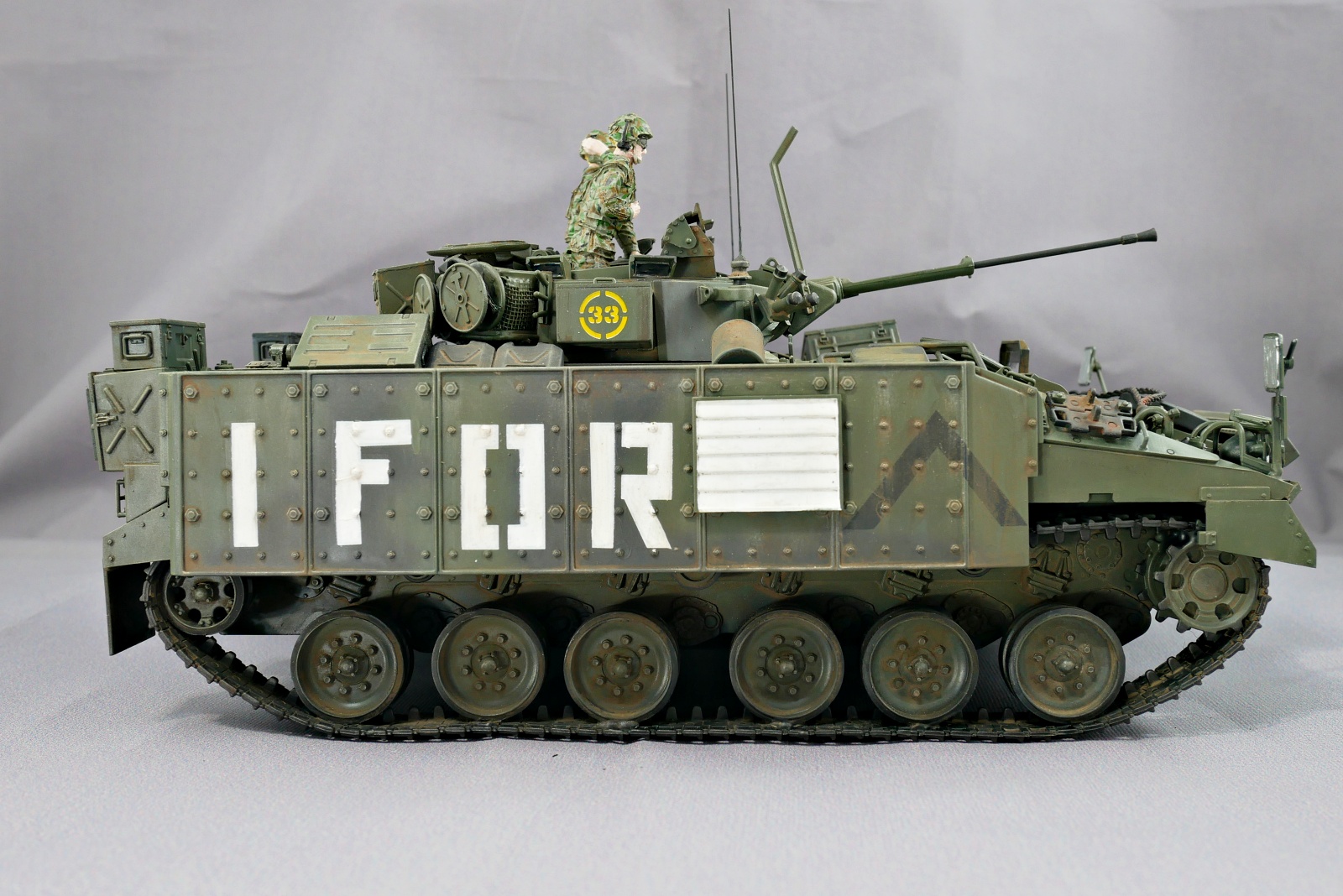


コメント